Managing underlying conditions, getting enough exercise, and maintaining your weight all reduce the likelihood of a stroke. Additionally, a nutritious diet can significantly improve your overall health. Foods rich in antioxidants and healthy fats help keep your blood vessels healthy and prevent blood clots. Let’s explore the protective foods that can reduce your risk of stroke.
Leafy Greens

Spinach, kale, and collard greens are high in potassium, fiber, and antioxidants, which help reduce blood pressure and improve overall heart health, thereby reducing the risk of stroke. Including these vegetables in your daily diet can be a delicious and easy way to boost your vascular health.
Whole Grains
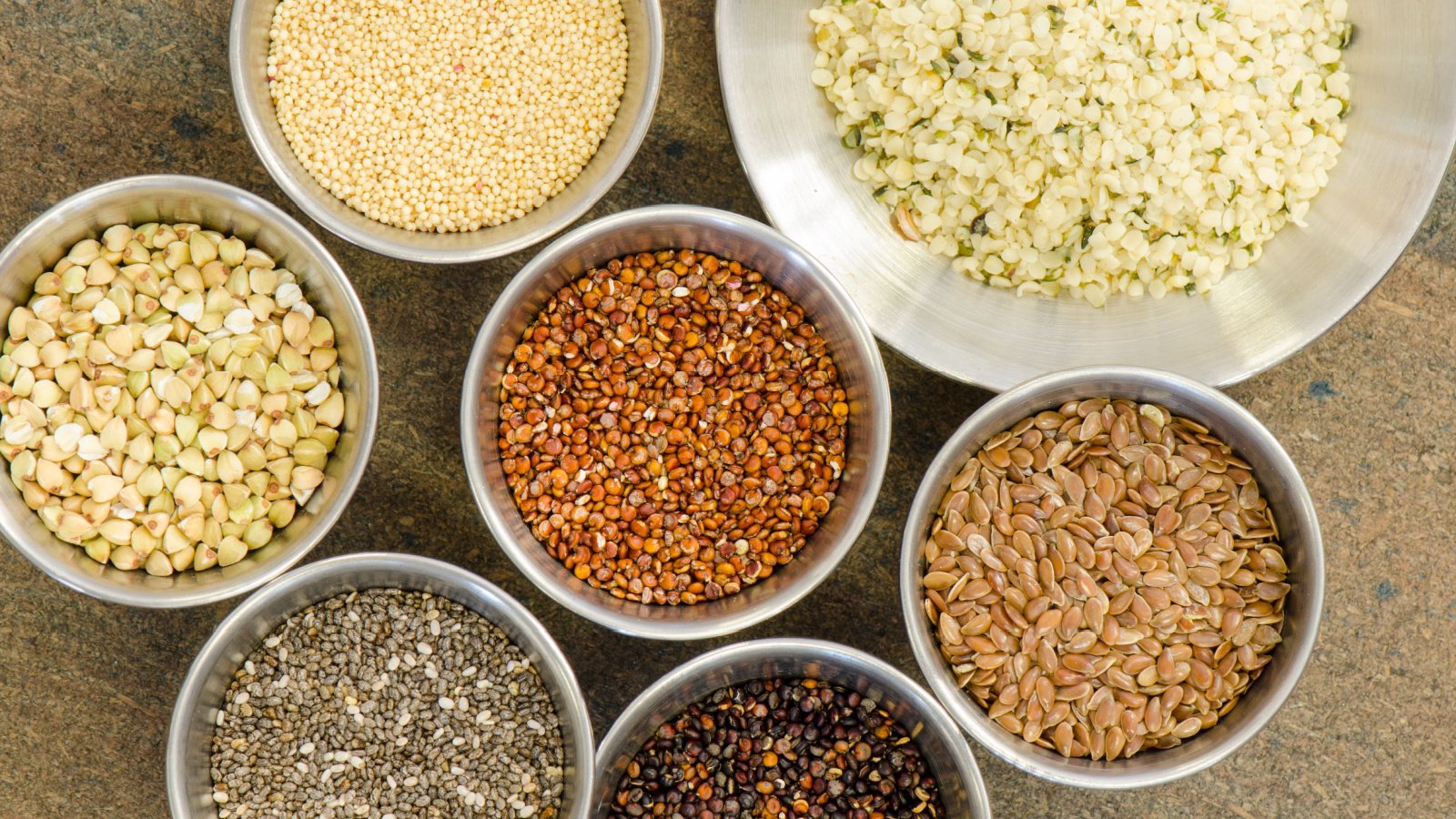
Oats, barley, and whole wheat help in maintaining healthy blood pressure. They are rich in fiber, which assists in reducing cholesterol and promoting blood flow. Consuming whole grains as part of a balanced diet can significantly lower your chances of a stroke.
Fatty Fish

Salmon, mackerel, and sardines are excellent sources of omega-3 fatty acids, known for reducing inflammation and preventing blood clots. Regular consumption of these fish can lead to healthier arteries and a lower risk of stroke. Aim for two to three servings per week.
Nuts and Seeds
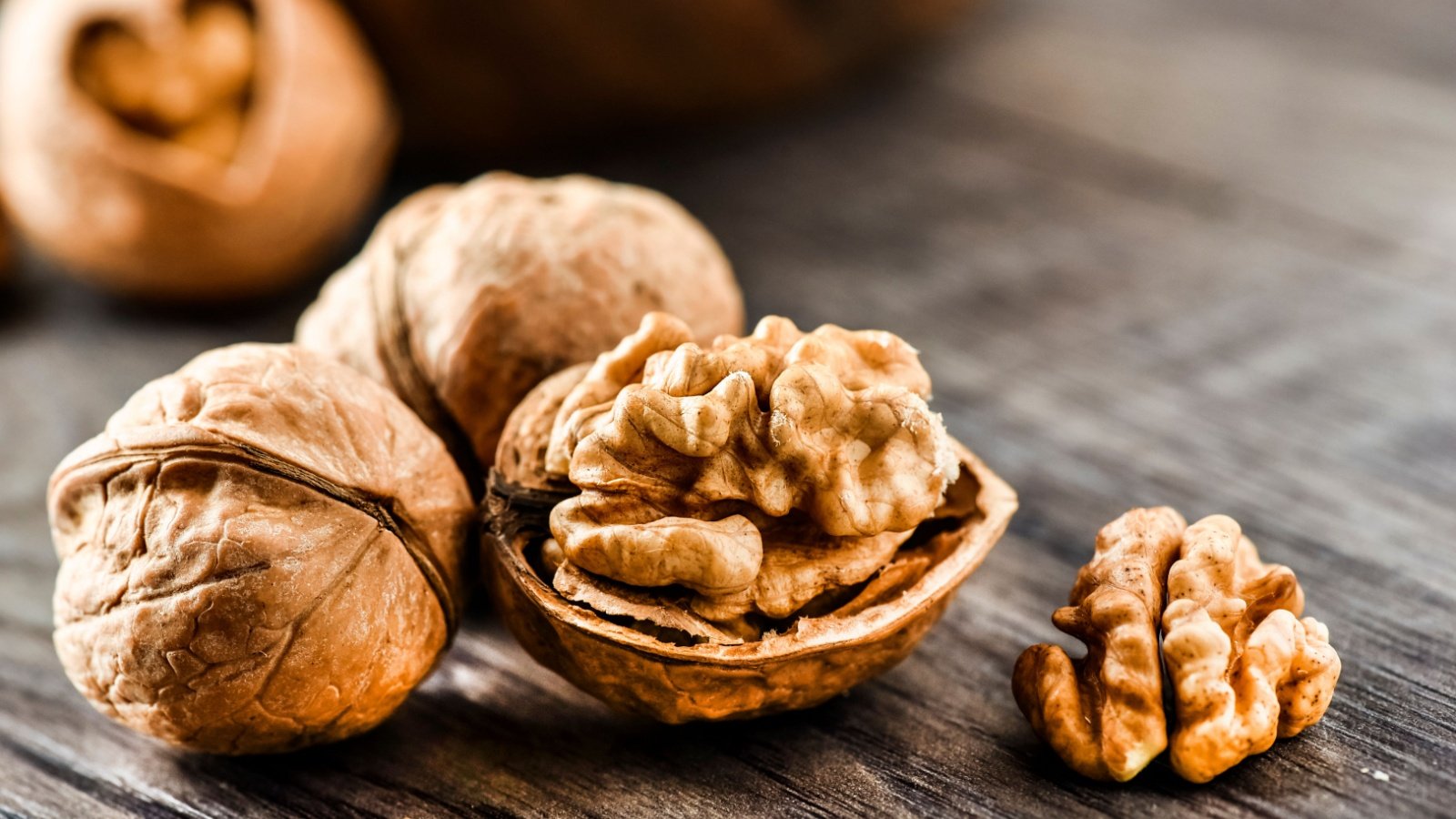
Almonds, flaxseeds, and chia seeds contain omega-3 fatty acids and fiber that contribute to cardiovascular health. They also offer vitamin E, which helps prevent blood clots. A handful of nuts a day can be a heart-healthy snack that potentially lowers stroke risk.
Citrus Fruits

Oranges, lemons, and other citrus fruits are high in vitamin C and flavonoids, which have been shown to reduce stroke risk. These fruits also help improve vascular health by strengthening capillary walls and improving arterial flexibility.
Low-Fat Dairy

Skim milk, yogurt, and cheese are good sources of calcium and vitamin D, which help maintain healthy blood pressure. Opting for low-fat options helps avoid the additional saturated fats found in full-fat dairy products.
Beans
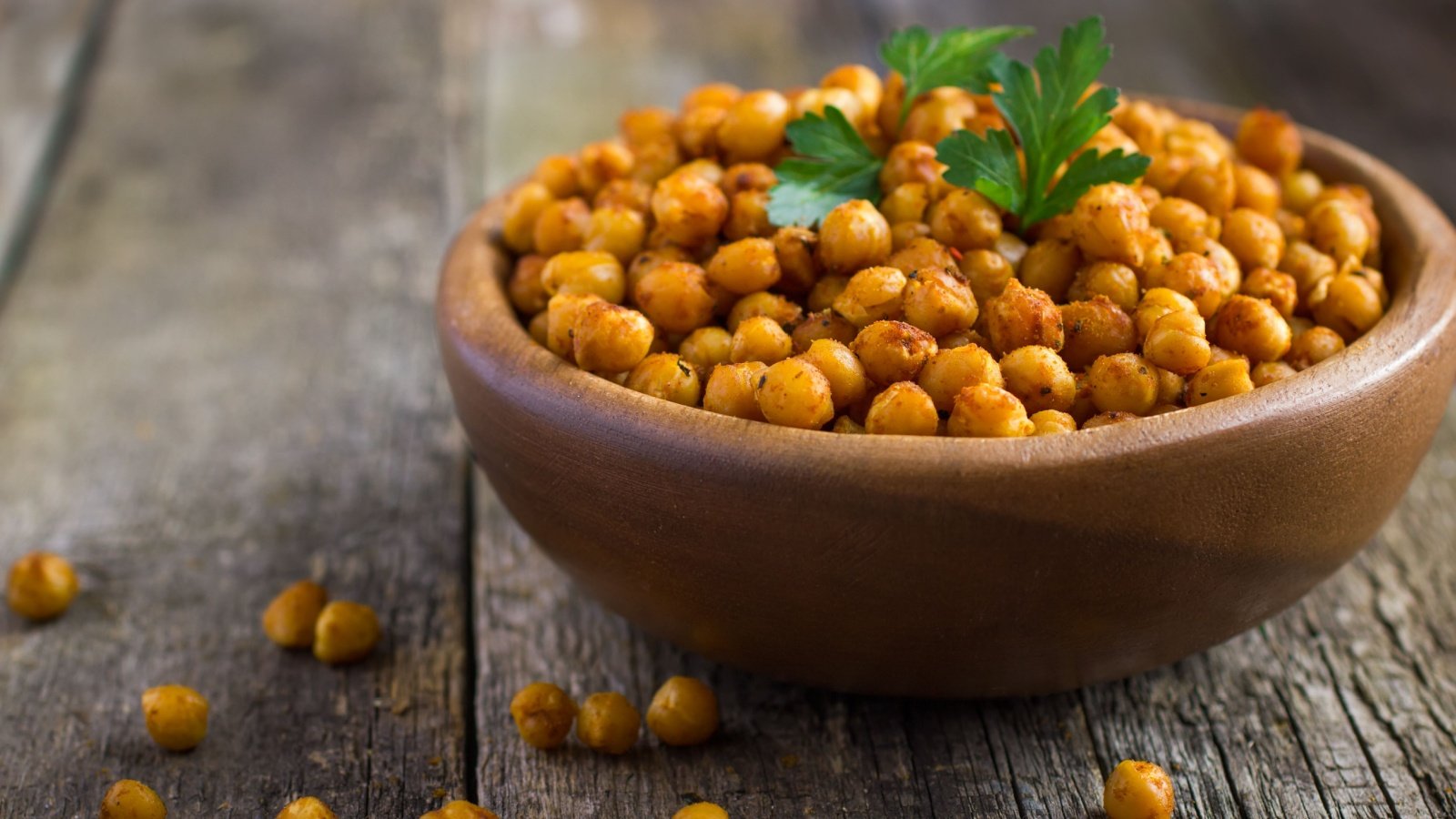
Beans offer protein, fiber, vitamins, and minerals while being low in fat. They help manage blood sugar levels and reduce hypertension, which are both stroke risk factors. Regularly including beans in your diet could be a proactive approach to stroke prevention.
Avocados

Avocados are rich in heart-healthy monounsaturated fats, which can help lower bad cholesterol levels and increase good cholesterol. This fruit also contains potassium, which is vital for maintaining healthy blood pressure. Adding avocados to your diet can aid in stroke prevention.
Dark Chocolate

Dark chocolate contains flavonoids that help thin the blood and improve circulation, which can reduce stroke risk. It’s important to choose chocolate with at least 70% cocoa to maximize the benefits and minimize sugar intake.
Tomatoes
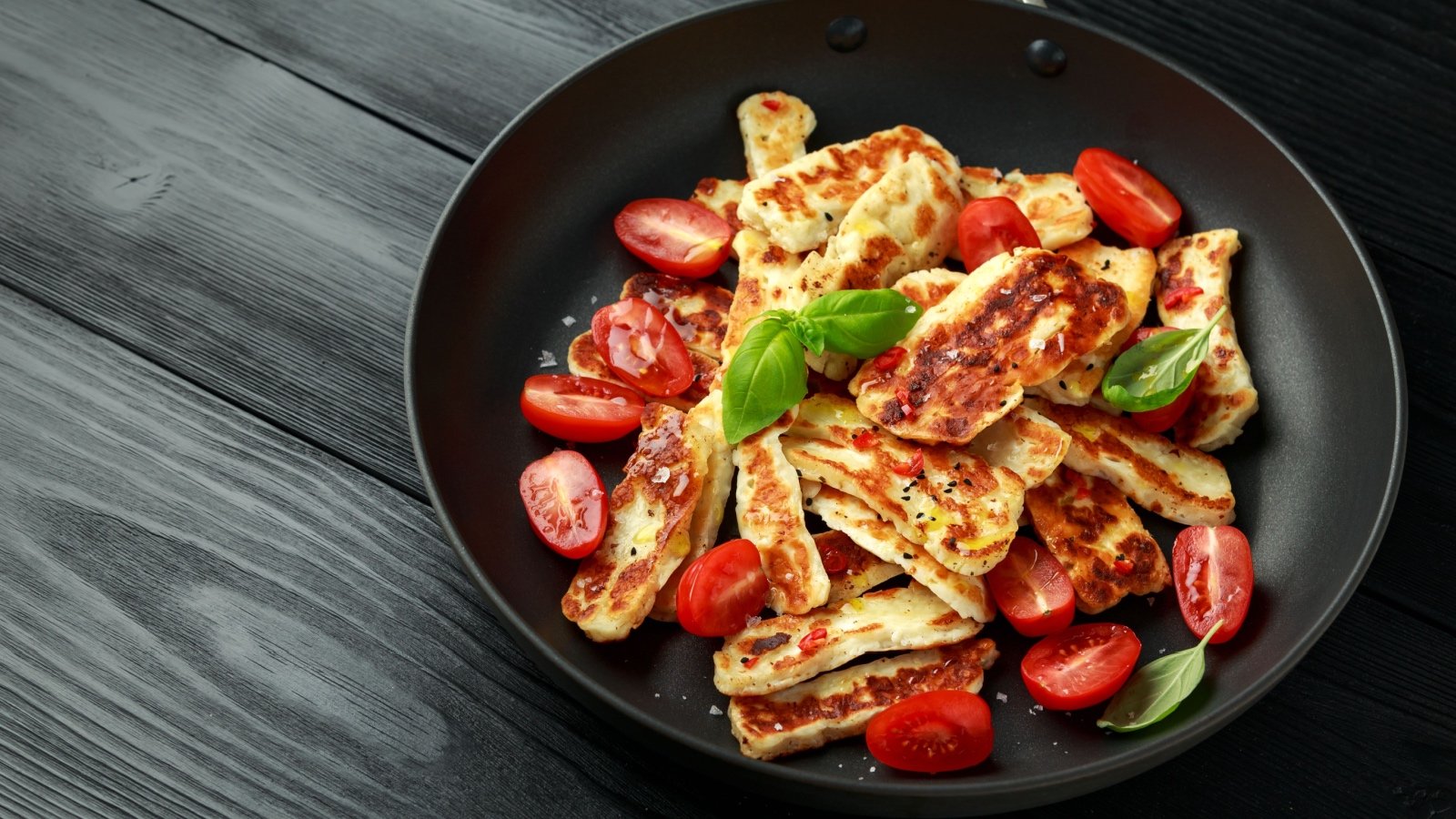
Tomatoes are rich in lycopene, an antioxidant that reduces inflammation and prevents clot formation. Research suggests that the higher your lycopene levels, the lower your risk of stroke might be. Incorporating fresh or cooked tomatoes into your diet is an effective way to benefit from this potent antioxidant.
Garlic
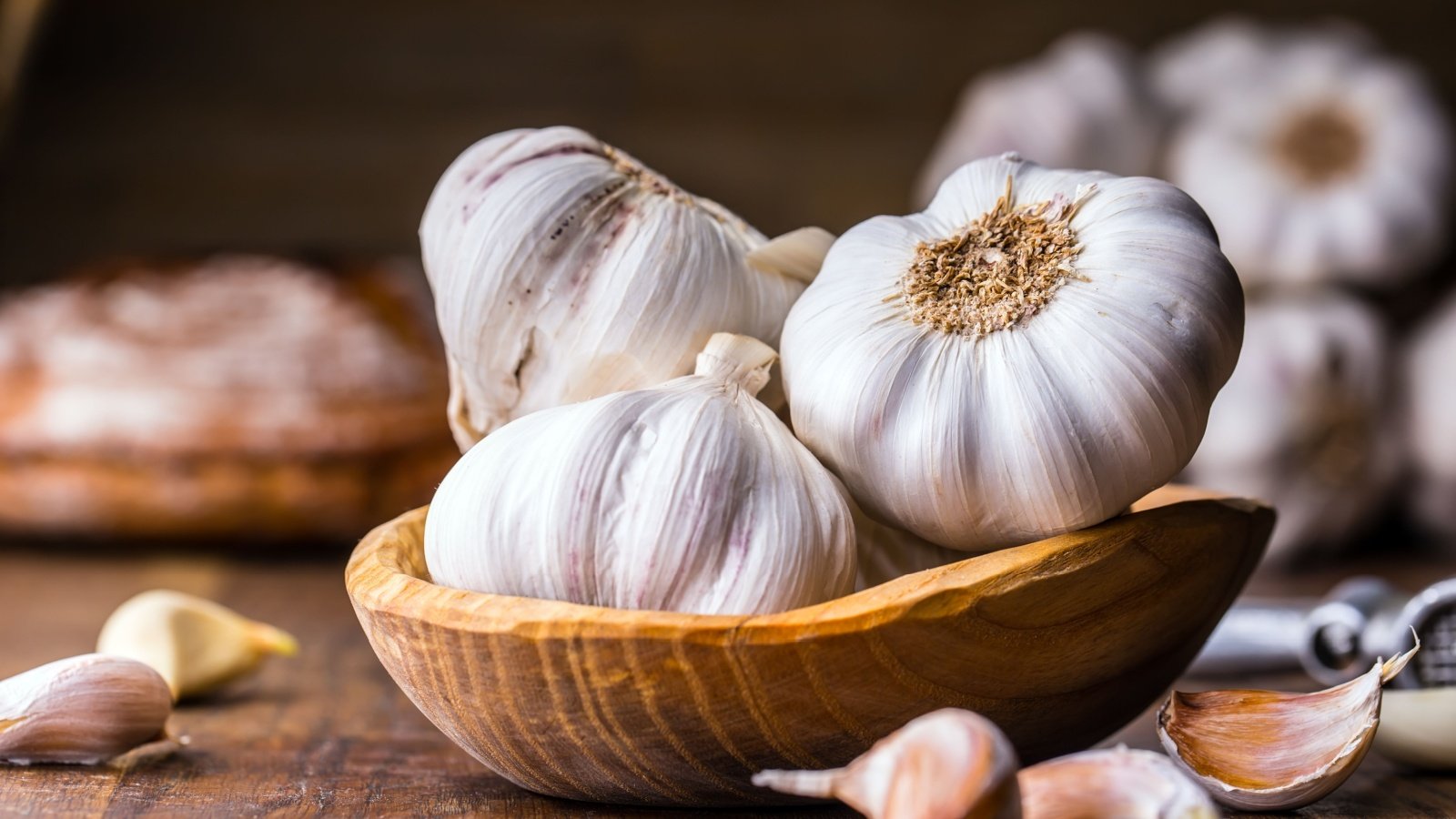
Garlic is renowned for its blood-thinning properties and ability to improve heart health. It helps lower blood pressure and cholesterol, key factors in stroke prevention. Adding garlic to your cooking can enhance flavors while contributing to a healthier diet.
Pomegranates

Pomegranates are packed with antioxidants that help reduce blood vessel damage and lower blood pressure. Drinking pomegranate juice or eating the seeds can significantly boost your cardiovascular health.
Blueberries
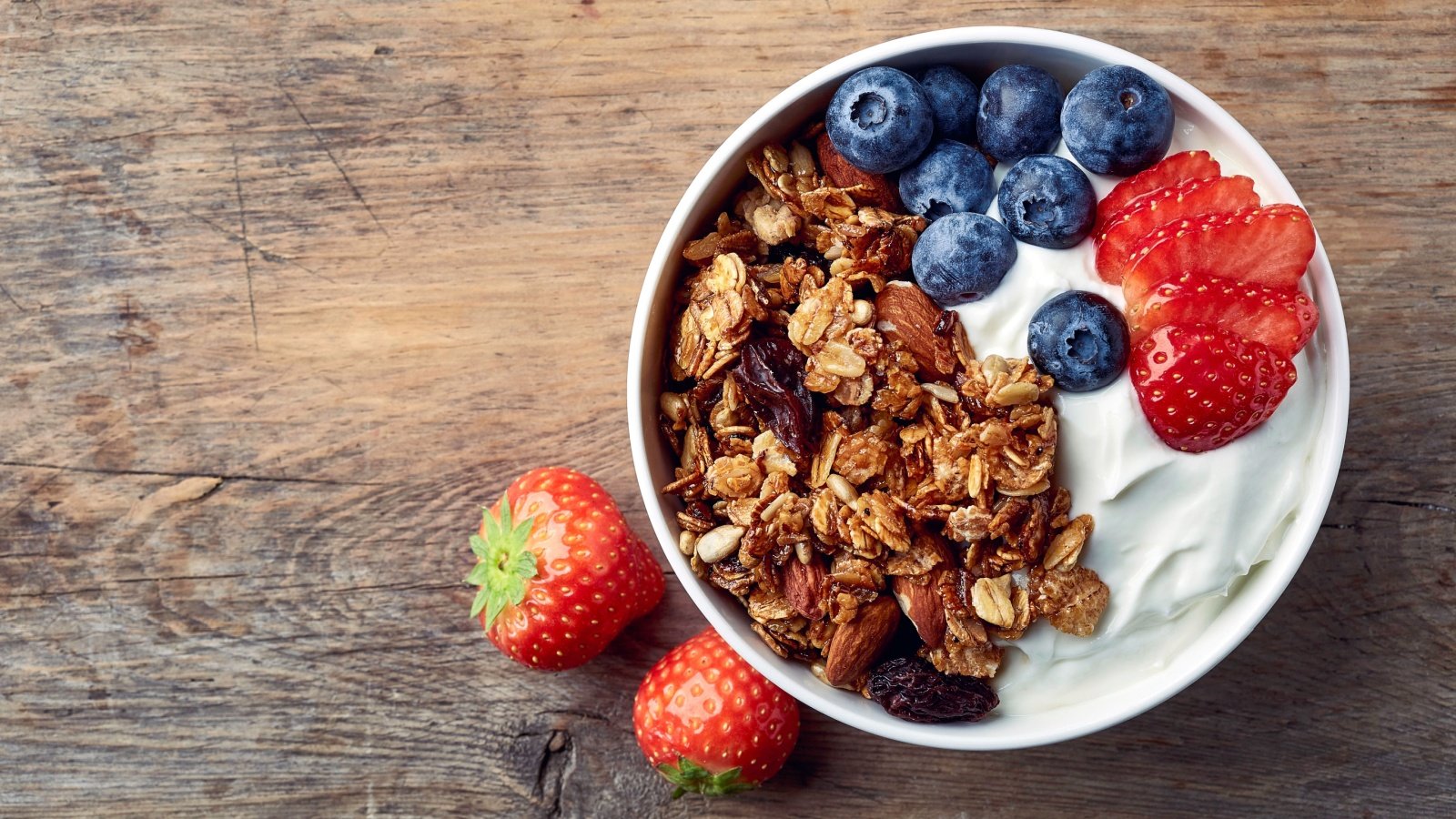
Blueberries boast high levels of antioxidants, which combat oxidative stress and inflammation that can lead to stroke. They also help lower LDL cholesterol and raise HDL cholesterol. Regular consumption of blueberries is linked with numerous vascular benefits.
Green Tea

Green tea is loaded with catechins and polyphenols, antioxidants that improve blood vessel function and lower cholesterol. Regular intake of green tea has been associated with a reduced risk of stroke. Its mild caffeine content also offers a gentle boost in metabolism without the harsh effects of stronger caffeinated drinks.
Bananas
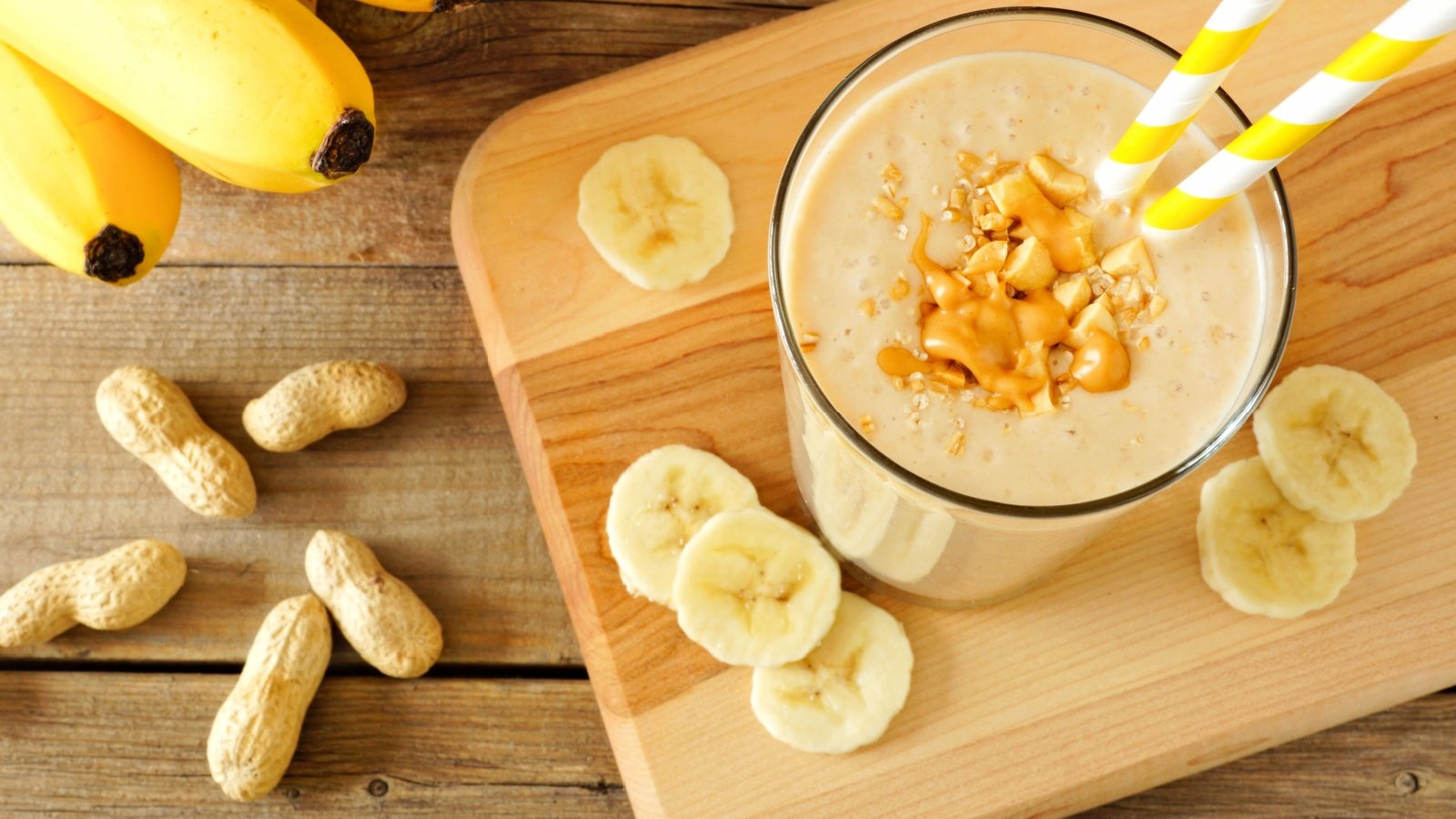
Bananas are an excellent source of potassium, which is vital for maintaining normal blood pressure and heart function. Eating a banana a day can help regulate blood pressure and prevent arterial blockages.
Turmeric

Turmeric contains curcumin, a compound that reduces inflammation, a major contributor to cardiovascular disease. Adding turmeric to your meals can not only enhance flavor but also offer significant anti-inflammatory benefits. Its use in traditional medicine as a healing agent is well-supported by modern science.
Spinach

Spinach is loaded with magnesium, potassium, and folate, all of which are essential for good heart health. These nutrients help lower blood pressure and prevent artery blockage, reducing stroke risk. Spinach can be easily incorporated into diets in salads, smoothies, or as a cooked side dish.
Olive Oil
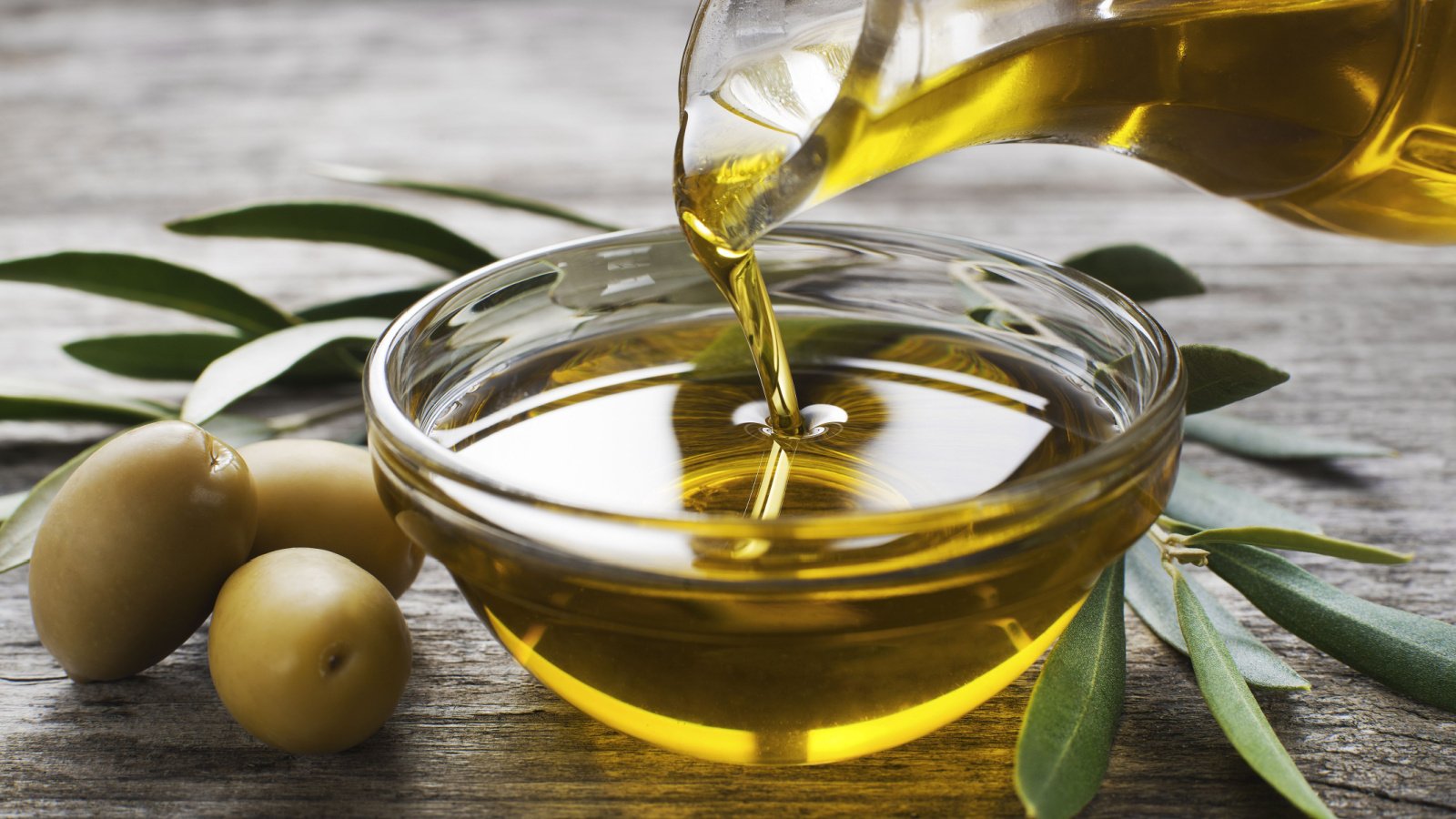
The monounsaturated fats in olive oil help reduce bad cholesterol levels and increase good cholesterol, which can prevent stroke. Using olive oil in cooking or as a salad dressing is a delicious way to enjoy its health benefits.
Apples

High in fiber and anti-inflammatory properties, apples help lower cholesterol and blood pressure. An apple a day could indeed keep the doctor away by helping prevent stroke along with other cardiovascular diseases. Their versatility makes them easy to incorporate into daily meals.
Asparagus

Grilled, roasted, or steamed, asparagus is rich in potassium, folate, and antioxidants, making it an excellent vegetable for reducing inflammation and cleansing arteries. It helps lower blood pressure and prevent clots, which are common precursors to stroke.
Beets
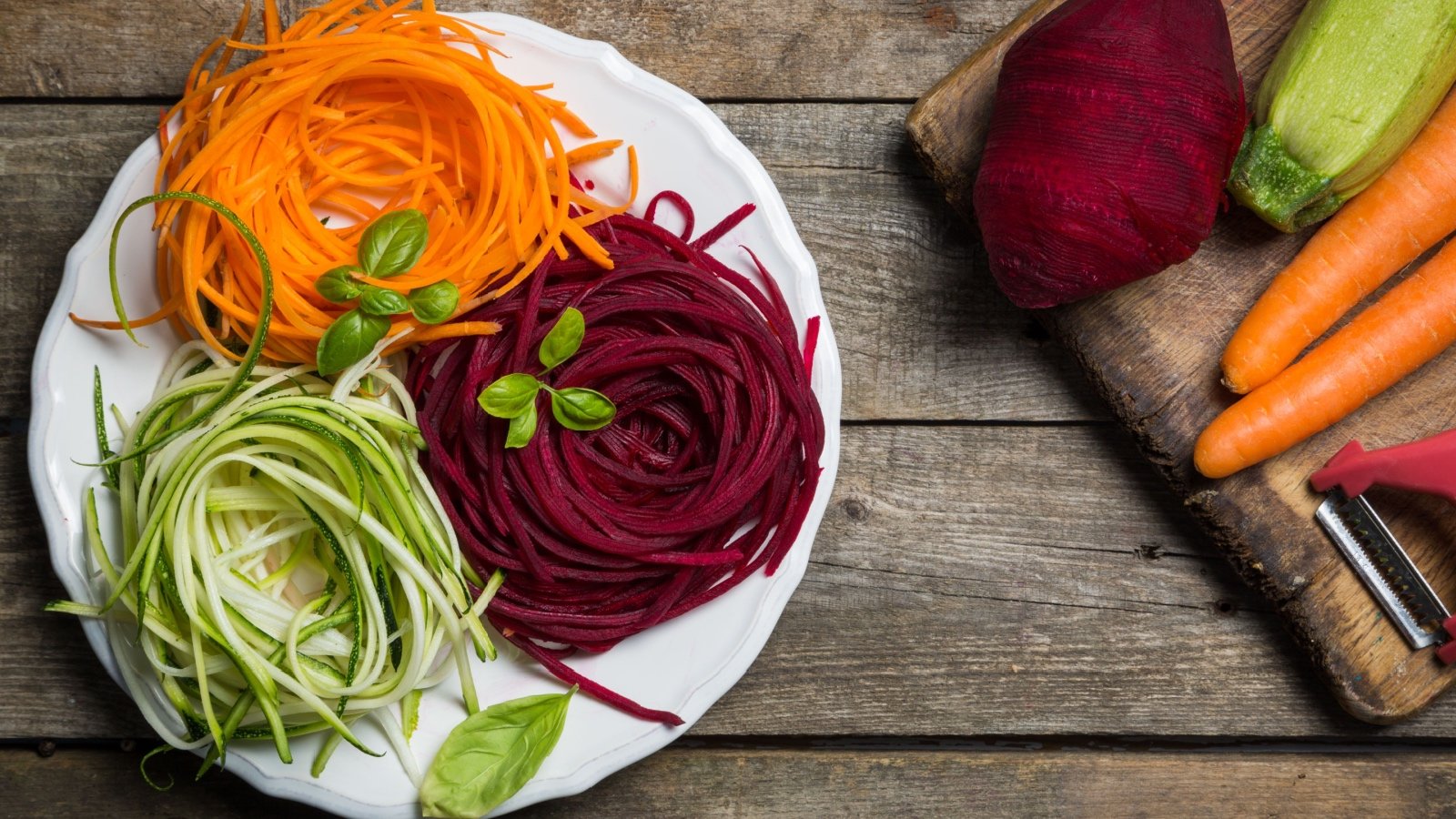
Beets are high in nitrates, which the body converts into nitric oxide, a compound that helps widen blood vessels and improve blood flow. Drinking beetroot juice has been shown to significantly lower blood pressure and improve blood vessel function.








http://semaglupharm.com/# does aetna cover rybelsus
LipiPharm turmeric and atorvastatin Lipi Pharm
п»їBuy Lipitor without prescription USA: Discreet shipping for Lipitor – atorvastatin pill identifier
atorvastatin 10mg picture: Discreet shipping for Lipitor – what does atorvastatin do for the body
https://semaglupharm.shop/# FDA-approved Rybelsus alternative
LipiPharm LipiPharm Order cholesterol medication online
Lipi Pharm: atorvastatin nursing considerations and teaching – LipiPharm
http://semaglupharm.com/# SemagluPharm
https://semaglupharm.shop/# rybelsus side effects weight loss
LipiPharm Lipi Pharm atorvastatin cause weight gain
5 mg rosuvastatin 5 mg: what does rosuvastatin 10 mg pill look like – CrestorPharm
crestor and zetia: CrestorPharm – Buy statins online discreet shipping
Crestor Pharm CrestorPharm CrestorPharm
PredniPharm: PredniPharm – prednisone 20mg tablets where to buy
Semaglu Pharm: No prescription diabetes meds online – Semaglu Pharm
https://semaglupharm.com/# Rybelsus side effects and dosage
https://semaglupharm.com/# Semaglu Pharm
80 mg prednisone daily: Predni Pharm – PredniPharm
Lipi Pharm Discreet shipping for Lipitor LipiPharm
what happens when you stop taking rosuvastatin: crestor cholesterol medicine – Crestor Pharm
https://semaglupharm.com/# rybelsus tab 14mg
Order rosuvastatin online legally: can crestor make you tired – Crestor Pharm
Lipi Pharm LipiPharm which is safer atorvastatin or rosuvastatin
PredniPharm: prednisone 4mg – prednisone 2.5 tablet
https://crestorpharm.shop/# п»їBuy Crestor without prescription
Lipi Pharm: generic form of lipitor – Safe atorvastatin purchase without RX
https://semaglupharm.shop/# goodrx semaglutide
Semaglu Pharm Order Rybelsus discreetly semaglutide otc equivalent
lipitor mechanism of action: LipiPharm – LipiPharm
https://semaglupharm.shop/# rybelsus)
atorvastatin foods to eat: LipiPharm – atorvastatin missed dose
prednisone 10 mg coupon PredniPharm cost of prednisone
prednisone 5mg price: prednisone for sale no prescription – PredniPharm
https://semaglupharm.com/# SemagluPharm
https://semaglupharm.com/# Where to buy Semaglutide legally
Predni Pharm: prednisone 5 mg tablet cost – Predni Pharm
FDA-approved Rybelsus alternative pill form of semaglutide Rybelsus side effects and dosage
Lipi Pharm: FDA-approved generic statins online – Safe atorvastatin purchase without RX
https://semaglupharm.shop/# Semaglu Pharm
Where to buy Semaglutide legally: Rybelsus 3mg 7mg 14mg – SemagluPharm
PredniPharm Predni Pharm buying prednisone
prednisone 4mg tab: Predni Pharm – Predni Pharm
https://semaglupharm.com/# Semaglutide tablets without prescription
https://semaglupharm.com/# Semaglu Pharm
Crestor Pharm: crestor diarrhea – Safe online pharmacy for Crestor
SemagluPharm SemagluPharm Safe delivery in the US
Discreet shipping for Lipitor: atorvastatin is sold under the trade name lipitor – LipiPharm
https://semaglupharm.shop/# Rybelsus for blood sugar control
rybelsus farmacia del ahorro: Rybelsus side effects and dosage – SemagluPharm
20 mg prednisone buy prednisone 1 mg mexico where to get prednisone
http://canadapharmglobal.com/# canada pharmacy
Meds From Mexico mexican rx online buying from online mexican pharmacy
canadian medications: canadian drug – northwest canadian pharmacy
Online medicine home delivery: online shopping pharmacy india – India Pharm Global
https://canadapharmglobal.com/# canadian pharmacy
canadian pharmacy online: canadian pharmacy near me – cheap canadian pharmacy online
best canadian pharmacy online Canada Pharm Global trusted canadian pharmacy
https://canadapharmglobal.com/# canadian pharmacy meds
India Pharm Global: Online medicine home delivery – India Pharm Global
https://indiapharmglobal.com/# India Pharm Global
India Pharm Global: india online pharmacy – top online pharmacy india
https://canadapharmglobal.com/# legit canadian pharmacy
thecanadianpharmacy canada drugs online review canada drugs reviews
indian pharmacy online: India Pharm Global – top online pharmacy india
mexican drugstore online: mexican pharmaceuticals online – Meds From Mexico
https://medsfrommexico.com/# Meds From Mexico
buying prescription drugs in mexico buying from online mexican pharmacy medication from mexico pharmacy
canadian pharmacy in canada: Canada Pharm Global – rate canadian pharmacies
http://canadapharmglobal.com/# canadian pharmacy no rx needed
canadian pharmacies: Canada Pharm Global – canadian pharmacy world
http://canadapharmglobal.com/# canadian drug pharmacy
canadian pharmacy no scripts canadian pharmacy king reviews canadian medications
Meds From Mexico: buying from online mexican pharmacy – Meds From Mexico
India Pharm Global: mail order pharmacy india – India Pharm Global
http://medsfrommexico.com/# mexican border pharmacies shipping to usa
Meds From Mexico Meds From Mexico mexican rx online
https://medsfrommexico.shop/# purple pharmacy mexico price list
Meds From Mexico: mexico pharmacies prescription drugs – Meds From Mexico
buy medicines online in india: reputable indian pharmacies – reputable indian online pharmacy
https://canadapharmglobal.com/# online canadian drugstore
Meds From Mexico mexican online pharmacies prescription drugs mexican mail order pharmacies
Online medicine order: India Pharm Global – pharmacy website india
India Pharm Global: indian pharmacy paypal – India Pharm Global
https://canadapharmglobal.shop/# canada drugs reviews
Meds From Mexico medicine in mexico pharmacies Meds From Mexico
https://medsfrommexico.shop/# mexico drug stores pharmacies
https://indiapharmglobal.com/# India Pharm Global
purple pharmacy mexico price list: Meds From Mexico – Meds From Mexico
canadian pharmacy online: best rated canadian pharmacy – canada pharmacy online legit
canadian online pharmacy reviews canadian pharmacy victoza best canadian pharmacy
https://medsfrommexico.shop/# Meds From Mexico
п»їbest mexican online pharmacies: medication from mexico pharmacy – Meds From Mexico
canadian pharmacy prices: Canada Pharm Global – canadapharmacyonline
Rask Apotek tomme kapsler apotek Rask Apotek
https://raskapotek.com/# hårfjerningskrem apotek
http://papafarma.com/# Papa Farma
Papa Farma: parafarmacia sevilla – Papa Farma
Papa Farma: loniten 10 mg donde comprar – Papa Farma
Svenska Pharma Svenska Pharma mjuk bettskena apotek
https://efarmaciait.com/# EFarmaciaIt
Papa Farma: farmacia veterinaria 24 horas – farmacia de guardia en cГЎdiz capital
enterogermina ГЁ detraibile: zineryt lozione amazon – EFarmaciaIt
https://svenskapharma.com/# Svenska Pharma
http://efarmaciait.com/# tadalafil 20 mg 4 compresse prezzo
gratis medicin Svenska Pharma Svenska Pharma
Svenska Pharma: hitta mina recept – apotek nГ¤t
http://svenskapharma.com/# Svenska Pharma
gelasimi espaГ±a: diprogenta crema comprar – vimovo 500 precio
EFarmaciaIt EFarmaciaIt robilas 20mg
Rask Apotek: Rask Apotek – bodylotion apotek
http://raskapotek.com/# bakteriell vagose apotek
http://efarmaciait.com/# EFarmaciaIt
EFarmaciaIt prisma 30 mg apotheke italien
cariban 10 mg precio: Papa Farma – que es el movicol
hГ¤mta ut recept online: schampo fett hГҐr apotek – kolla mina recept
https://svenskapharma.com/# Svenska Pharma
EFarmaciaIt: EFarmaciaIt – farmacia amica offerte
balsoprim opiniones se puede comprar cialis genГ©rico en farmacias fisicas where to buy condoms in spain
Papa Farma: Papa Farma – farmacia de guardia sevilla abierto ahora
https://papafarma.com/# Papa Farma
https://papafarma.com/# brentan crema prospecto
kГ¶pa jod apotek: Svenska Pharma – jour apotek
EFarmaciaIt EFarmaciaIt come riconoscere farmacie online autorizzate
https://svenskapharma.shop/# receptbelagd medicin mot riklig mens
diflucan senza ricetta: top 10 marche integratori sportivi – EFarmaciaIt
Rask Apotek: varmepose apotek – Rask Apotek
EFarmaciaIt EFarmaciaIt bijuva italia prezzo
https://svenskapharma.com/# Svenska Pharma
http://efarmaciait.com/# EFarmaciaIt
EFarmaciaIt: EFarmaciaIt – EFarmaciaIt
zyclara precio farmacias en valencia capital Papa Farma
https://raskapotek.com/# Rask Apotek
EFarmaciaIt: EFarmaciaIt – delecit 600 mg flaconcini
farmacia carrГЁ: siti farmacie – cascina la secca
oral-b io 10 precio Papa Farma Papa Farma
http://svenskapharma.com/# billiga mammakläder
http://raskapotek.com/# Rask Apotek
styling kort hГҐr: Svenska Pharma – shampoo apotek
EFarmaciaIt: EFarmaciaIt – EFarmaciaIt
http://svenskapharma.com/# Svenska Pharma
farmacia on farma max top doctors recensioni
https://svenskapharma.shop/# Svenska Pharma
gentalyn beta 0 1 + 0 1 crema a cosa serve: EFarmaciaIt – EFarmaciaIt
Svenska Pharma kaliumpermanganat apotek omega 3 rea
Papa Farma: ed farmacia espaГ±a opiniones – Papa Farma
https://pharmajetzt.com/# Pharma Jetzt
PharmaConnectUSA: french pharmacy products online – Pharma Connect USA
Pharma Jetzt PharmaJetzt PharmaJetzt
online apotheke germany: Pharma Jetzt – Pharma Jetzt
https://pharmaconfiance.shop/# qu est ce qu une parapharmacie
Pharma Connect USA: online pharmacy ambien – Pharma Connect USA
apotheke deutschland schnellste online apotheke apotheken online shop
https://medicijnpunt.com/# MedicijnPunt
the gld shop: gde rennes – Pharma Confiance
https://medicijnpunt.shop/# MedicijnPunt
dutch apotheek: Medicijn Punt – MedicijnPunt
le pharmacie nuxe canada Pharma Confiance
http://pharmaconnectusa.com/# Pharma Connect USA
world pharmacy india: care rx pharmacy – Pharma Connect USA
MedicijnPunt: MedicijnPunt – online medicijnen bestellen
https://pharmaconnectusa.shop/# PharmaConnectUSA
https://pharmaconnectusa.shop/# new zealand pharmacy domperidone
Medicijn Punt online apotheek nederland met recept apteka internetowa holandia
PharmaConnectUSA: Pharma Connect USA – mutual of omaha rx pharmacy
Pharma Confiance: parapharmaceutique – cialis 100 mg prix
http://medicijnpunt.com/# bestellen apotheek
MedicijnPunt apotheken in holland MedicijnPunt
shop apotheke berlin: Pharma Jetzt – apotal shop
Pharma Jetzt: apotheken internet – versandapotheke
http://medicijnpunt.com/# MedicijnPunt
http://pharmaconfiance.com/# pharmacie francaise
Pharma Jetzt Pharma Jetzt apotheke online versandkostenfrei
PharmaConnectUSA: kroger pharmacy gabapentin – PharmaConnectUSA
Pharma Connect USA: PharmaConnectUSA – pharmacy customer care viagra
https://pharmajetzt.com/# abotheke
online pharmacy worldwide shipping Pharma Connect USA Pharma Connect USA
apteka amsterdam: MedicijnPunt – MedicijnPunt
http://pharmaconfiance.com/# médicament metronidazole
PharmaConnectUSA Pharma Connect USA propecia pharmacy direct
https://medicijnpunt.com/# mijn medicijnkosten
recept medicijnen: Medicijn Punt – nieuwe pharma
Medicijn Punt: medicatie online – internetapotheek nederland
https://pharmaconfiance.com/# Pharma Confiance
cholesterol rx partners pharmacy PharmaConnectUSA
Pharma Confiance: Pharma Confiance – ongles amande
http://medicijnpunt.com/# pseudoephedrine kopen in nederland
PharmaJetzt: Pharma Jetzt – PharmaJetzt
online apotheek zonder recept online apotheke apotheke nl
medicijnen zonder recept kopen: MedicijnPunt – MedicijnPunt
https://pharmaconnectusa.com/# ativan online pharmacy
https://pharmajetzt.com/# PharmaJetzt
Pharma Confiance: Pharma Confiance – achat ozempic en ligne
PharmaJetzt shop aptheke medikamente bestellen
https://pharmaconfiance.com/# cariban 10 mg
Pharma Confiance: commander medicament – viagra france pharmacy
Medicijn Punt: mijn apotheek online – medicijnen kopen
https://pharmaconnectusa.com/# med rx online pharmacy
mes jambes .com Pharma Confiance Pharma Confiance
Pharma Connect USA: complete online pharmacy – nexium online pharmacy
https://medicijnpunt.shop/# Medicijn Punt
online pharmacy cheap viagra: viagra cialis levitra online pharmacy – Pharma Connect USA
http://pharmaconfiance.com/# Pharma Confiance
Pharma Confiance: pharmacie de garde calvados aujourd’hui – traitement metronidazole
online apotheke mit rechnung mycare apotheke online bestellen europa apotheek venlo online
PharmaConnectUSA: wellbutrin target pharmacy – flomax online pharmacy
http://pharmaconfiance.com/# Pharma Confiance
Pharma Confiance: Pharma Confiance – couche pour chien pharmacie
PharmaJetzt PharmaJetzt PharmaJetzt
berocca avis 60 millions de consommateur: 1000 farmacie – amoxicilline en poudre
http://medicijnpunt.com/# farma
https://medicijnpunt.shop/# Medicijn Punt
Pharma Connect USA: PharmaConnectUSA – atlantic pharmacy viagra
ghd entreprise: je ne tire que 20 ml de lait – Pharma Confiance
https://pharmajetzt.shop/# online apotheke ohne versandkosten
online apotheke germany: onlineapotheken – deutschland apotheke
http://medicijnpunt.com/# Medicijn Punt
MedicijnPunt: Medicijn Punt – MedicijnPunt
https://medicijnpunt.shop/# medicijen
medicijn bestellen apotheek: MedicijnPunt – MedicijnPunt
MedicijnPunt: MedicijnPunt – afbeelding medicijnen
https://pharmaconnectusa.shop/# Pharma Connect USA
PharmaConnectUSA: PharmaConnectUSA – Pharma Connect USA
apotheke m: PharmaJetzt – gГјnstige online apotheke auf rechnung
https://pharmajetzt.com/# Pharma Jetzt
https://pharmaconfiance.shop/# grossiste croquette chien pour particulier
Pharma Connect USA: Pharma Connect USA – PharmaConnectUSA
PharmaJetzt: fledox in apotheke kaufen – apotheken versand
http://medicijnpunt.com/# apotheek online nl
MedicijnPunt: MedicijnPunt – appotheek
Medicijn Punt: MedicijnPunt – MedicijnPunt
https://pharmaconfiance.shop/# viagra connect france
https://medicijnpunt.com/# Medicijn Punt
online apotheker: online apotheek – Medicijn Punt
medicijn: MedicijnPunt – Medicijn Punt
https://pharmaconfiance.shop/# tadalafil 5 mg efficacité
online pharmacy sildenafil citrate: PharmaConnectUSA – Lamivudin (Cipla Ltd)
PharmaJetzt: Pharma Jetzt – PharmaJetzt
https://pharmaconnectusa.shop/# PharmaConnectUSA
https://pharmaconfiance.com/# Pharma Confiance
bestellen apotheek: Medicijn Punt – apothekers
PharmaConnectUSA: PharmaConnectUSA – PharmaConnectUSA
internet apotheek nederland: MedicijnPunt – MedicijnPunt
MedicijnPunt: MedicijnPunt – Medicijn Punt
https://pharmajetzt.shop/# apotheke bestellen schnell
https://medicijnpunt.shop/# Medicijn Punt
PharmaConnectUSA: PharmaConnectUSA – Extra Super Avana
apotheker online: MedicijnPunt – internetapotheek
http://pharmaconnectusa.com/# PharmaConnectUSA
MedicijnPunt: med apotheek – betrouwbare online apotheek zonder recept
Pharma Jetzt: PharmaJetzt – medikament online bestellen
Pharma Confiance sans culotte lourdes Pharma Confiance
tapis roulant pour chat: Pharma Confiance – pharmacie Г proximitГ© ouverte
https://pharmajetzt.com/# versandapotheke
https://pharmajetzt.shop/# PharmaJetzt
PharmaJetzt: apoteken – onlineapotheken
fort tonique Pharma Confiance google maps pharmacie
Pharma Jetzt: Pharma Jetzt – PharmaJetzt
online medicijnen bestellen apotheek: apteka nl – MedicijnPunt
https://medicijnpunt.shop/# MedicijnPunt
Pharma Confiance: Pharma Confiance – Pharma Confiance
apotheke rechnung: PharmaJetzt – PharmaJetzt
Viagra with Fluoxetine PharmaConnectUSA cheap generic viagra online pharmacy
https://pharmaconfiance.shop/# Pharma Confiance
https://medicijnpunt.com/# apotheek spanje online
Pharma Confiance: Pharma Confiance – Pharma Confiance
MedicijnPunt: internetapotheek – inloggen apotheek
MedicijnPunt: MedicijnPunt – apotheke
Medicijn Punt MedicijnPunt Medicijn Punt
http://pharmajetzt.com/# PharmaJetzt
Pharma Confiance: box garancia – Pharma Confiance
Pharma Jetzt: online versandapotheke – onlineapotheken
http://pharmajetzt.com/# Pharma Jetzt
https://medicijnpunt.shop/# Medicijn Punt
sjop apotheke inline apotheke Pharma Jetzt
apozheke: Pharma Jetzt – Pharma Jetzt
Pharma Confiance: parapharcie en ligne – amoxicilline grossesse avis
snel medicijnen bestellen: MedicijnPunt – Medicijn Punt
https://pharmaconnectusa.com/# online pharmacy pain meds
PharmaJetzt: shop apot – Pharma Jetzt
https://pharmaconfiance.com/# Pharma Confiance
renova mexico pharmacy: india online pharmacy store – pharmacy live ce online
http://pharmaconfiance.com/# sildenafil 100 mg durée de l’effet prix
online apotheek gratis verzending: Medicijn Punt – MedicijnPunt
Levitra Oral Jelly: Pharma Connect USA – Pharma Connect USA
provigil overseas pharmacy AebgJoymn PharmaConnectUSA
Medicijn Punt: apotheek online bestellen – online apotheek nederland
https://medicijnpunt.shop/# recept medicijn
medicijnen online: Medicijn Punt – Medicijn Punt
https://indimedsdirect.com/# best india pharmacy
IndiMeds Direct IndiMeds Direct online pharmacy india
mexico drug stores pharmacies: reputable mexican pharmacies online – mexican pharmaceuticals online
http://tijuanameds.com/# TijuanaMeds
canadian pharmacy online ship to usa: cheap canadian pharmacy online – vipps approved canadian online pharmacy
IndiMeds Direct IndiMeds Direct indian pharmacies safe
https://indimedsdirect.shop/# IndiMeds Direct
IndiMeds Direct: п»їlegitimate online pharmacies india – IndiMeds Direct
indianpharmacy com: IndiMeds Direct – IndiMeds Direct
https://canrxdirect.com/# legit canadian pharmacy
https://canrxdirect.shop/# canadian drug
canadian online pharmacy reviews CanRx Direct canadian pharmacy no rx needed
TijuanaMeds: TijuanaMeds – mexico drug stores pharmacies
https://canrxdirect.com/# canadian compounding pharmacy
canadianpharmacy com: ed meds online canada – the canadian pharmacy
https://tijuanameds.shop/# mexico drug stores pharmacies
canadian pharmacy 24h com CanRx Direct canadian pharmacy price checker
IndiMeds Direct: IndiMeds Direct – india pharmacy
https://tijuanameds.shop/# medication from mexico pharmacy
my canadian pharmacy: CanRx Direct – canadian pharmacy ed medications
canadian world pharmacy canadian pharmacy canadian pharmacies that deliver to the us
http://tijuanameds.com/# purple pharmacy mexico price list
canadian pharmacy meds reviews: reliable canadian pharmacy – canadian drug
https://canrxdirect.shop/# canadian neighbor pharmacy
medication canadian pharmacy: canadian pharmacies comparison – pharmacy canadian
IndiMeds Direct IndiMeds Direct IndiMeds Direct
https://indimedsdirect.com/# best india pharmacy
TijuanaMeds: buying prescription drugs in mexico online – TijuanaMeds
IndiMeds Direct: india pharmacy – cheapest online pharmacy india
mexican online pharmacies prescription drugs TijuanaMeds medicine in mexico pharmacies
https://indimedsdirect.shop/# IndiMeds Direct
RxFree Meds: RxFree Meds – us online pharmacy cialis
diprogenta genГ©rico precio: iraltone aga plus prospecto – farmacias en sevilla
https://rxfreemeds.com/# uk pharmacy propecia
http://enclomiphenebestprice.com/# enclomiphene buy
enclomiphene citrate enclomiphene enclomiphene buy
Farmacia Asequible: Farmacia Asequible – vimovo 500
Farmacia Asequible: Farmacia Asequible – Farmacia Asequible
http://enclomiphenebestprice.com/# enclomiphene citrate
bupropion pharmacy prices rx reliable pharmacy discount pharmacy cialis
enclomiphene buy: enclomiphene online – enclomiphene online
https://farmaciaasequible.com/# farmacia bcn
prozac online pharmacy: rx hmong pharmacy – RxFree Meds
http://farmaciaasequible.com/# que es casenlax
Farmacia Asequible Farmacia Asequible drogueria espaГ±a
enclomiphene for men: enclomiphene buy – enclomiphene for sale
isla solar opiniones: Farmacia Asequible – Farmacia Asequible
RxFree Meds meijer pharmacy amoxicillin phenergan uk pharmacy
http://enclomiphenebestprice.com/# enclomiphene online
cialis us pharmacy: RxFree Meds – RxFree Meds
enclomiphene best price: enclomiphene online – enclomiphene
enclomiphene enclomiphene buy enclomiphene
https://farmaciaasequible.com/# Farmacia Asequible
epiduo forte opiniones: citrafleet amazon – syracerin para que sirve
enclomiphene testosterone: enclomiphene price – enclomiphene for men
https://rxfreemeds.com/# pantoprazole pharmacy
mejores parafarmacias online energy online directo Farmacia Asequible
enclomiphene online: enclomiphene citrate – enclomiphene
http://rxfreemeds.com/# RxFree Meds
https://rxfreemeds.com/# RxFree Meds
enclomiphene citrate enclomiphene price enclomiphene testosterone
Farmacia Asequible: Farmacia Asequible – Farmacia Asequible
https://rxfreemeds.com/# rx pharmacy richland washington
braun serie 6 opiniones farmacia canarias online Farmacia Asequible
https://rxfreemeds.shop/# RxFree Meds
RxFree Meds: united pharmacy nolvadex – RxFree Meds
https://rxfreemeds.com/# RxFree Meds
ornibel prospecto Farmacia Asequible Farmacia Asequible
enclomiphene buy enclomiphene enclomiphene online
opinion direct seguros: Farmacia Asequible – gran farmacia murcia
https://enclomiphenebestprice.shop/# enclomiphene best price
enclomiphene for sale enclomiphene best price enclomiphene best price
farmacia 24h vigo: Farmacia Asequible – droguerias
pharafarmacia Farmacia Asequible gran farmacia
enclomiphene for sale enclomiphene online enclomiphene citrate
enclomiphene: enclomiphene price – enclomiphene online
parafarmacia y farmacia farmacia elche Farmacia Asequible
https://enclomiphenebestprice.com/# enclomiphene testosterone
farmacia sevilla Farmacia Asequible Farmacia Asequible
Farmacia Asequible: cenforce 100 amazon – Farmacia Asequible
farmacia vigo 24 horas pure de platano para bebe fisio solares
farmacia market opiniones: Farmacia Asequible – Farmacia Asequible
https://rxfreemeds.com/# RxFree Meds
RxFree Meds rite rx care pharmacy RxFree Meds
farmacias abiertas Farmacia Asequible epiduo forte espaГ±a
precio movicol 30 sobres: farmacia piГ±a – farmacias 24 horas granada
legitimate online pharmacy list RxFree Meds RxFree Meds
https://farmaciaasequible.shop/# Farmacia Asequible
gripe baleares Farmacia Asequible melatonina de 10 mg donde comprar
publix pharmacy lisinopril: us pharmacy viagra online – RxFree Meds
enclomiphene citrate enclomiphene for men enclomiphene online
http://farmaciaasequible.com/# oral b io
enclomiphene buy: enclomiphene – enclomiphene
boots pharmacy propecia optum rx pharmacy help desk klonopin pharmacy price
Farmacia Asequible farmacia islas baleares vigo mejores pastillas para adelgazar segГєn la ocu
buy enclomiphene online: enclomiphene for sale – enclomiphene citrate
https://rxfreemeds.shop/# RxFree Meds
RxFree Meds: nexium pharmacy prices – RxFree Meds
farmacia 24 horas bilbao Farmacia Asequible Farmacia Asequible
enclomiphene buy: enclomiphene citrate – enclomiphene best price
losartan potassium online pharmacy venlafaxine target pharmacy RxFree Meds
Farmacia Asequible: Farmacia Asequible – farmacias en valencia capital
https://farmaciaasequible.shop/# casenlax jarabe amazon
RxFree Meds RxFree Meds RxFree Meds
RxFree Meds: RxFree Meds – RxFree Meds
https://farmaciaasequible.shop/# fundas para el pene
https://farmaciaasequible.shop/# Farmacia Asequible
Farmacia Asequible: Farmacia Asequible – farmacia 41
enclomiphene online buy enclomiphene online enclomiphene best price
RxFree Meds: RxFree Meds – late night pharmacy artane
https://indomedsusa.com/# pharmacy website india
buying prescription drugs in mexico: MexiMeds Express – pharmacies in mexico that ship to usa
https://indomedsusa.com/# buy prescription drugs from india
top 10 pharmacies in india IndoMeds USA IndoMeds USA
canadian pharmacy near me: MediSmart Pharmacy – the canadian drugstore
buy prescription drugs from india: IndoMeds USA – IndoMeds USA
https://medismartpharmacy.shop/# boots pharmacy cetirizine
IndoMeds USA IndoMeds USA IndoMeds USA
IndoMeds USA: top 10 pharmacies in india – india pharmacy mail order
https://medismartpharmacy.com/# provigil overseas pharmacy
MexiMeds Express: mexico drug stores pharmacies – MexiMeds Express
http://meximedsexpress.com/# mexican border pharmacies shipping to usa
clindamycin online pharmacy mexican pharmacy online reviews Kamagra Gold
indianpharmacy com: IndoMeds USA – IndoMeds USA
best india pharmacy: indian pharmacy online – Online medicine order
https://indomedsusa.shop/# IndoMeds USA
MexiMeds Express MexiMeds Express п»їbest mexican online pharmacies
http://meximedsexpress.com/# MexiMeds Express
MexiMeds Express: buying from online mexican pharmacy – mexico pharmacies prescription drugs
india pharmacy mail order: IndoMeds USA – IndoMeds USA
http://medismartpharmacy.com/# percocet online pharmacy
MexiMeds Express MexiMeds Express MexiMeds Express
MexiMeds Express: mexico pharmacies prescription drugs – best online pharmacies in mexico
imiquimod pharmacy: pharmacy vardenafil – methotrexate prices pharmacy
https://meximedsexpress.com/# mexico drug stores pharmacies
https://medismartpharmacy.com/# lipitor 4 copay participating pharmacy
http://medismartpharmacy.com/# seconal online pharmacy
canadian pharmacies comparison: MediSmart Pharmacy – onlinecanadianpharmacy
online pharmacy clobetasol: tretinoin gel online pharmacy – safeway pharmacy store hours
https://medismartpharmacy.shop/# benadryl pharmacy
reputable indian online pharmacy: indian pharmacy online – top online pharmacy india
mexican pharmaceuticals online: mexican rx online – mexican pharmaceuticals online
https://indomedsusa.shop/# IndoMeds USA
IndoMeds USA reputable indian online pharmacy IndoMeds USA
https://meximedsexpress.shop/# medicine in mexico pharmacies
MexiMeds Express: medicine in mexico pharmacies – MexiMeds Express
IndoMeds USA: indian pharmacy – india pharmacy mail order
http://medismartpharmacy.com/# sure save pharmacy
medication from mexico pharmacy: MexiMeds Express – MexiMeds Express
canadian online pharmacy reviews: MediSmart Pharmacy – onlinepharmaciescanada com
http://indomedsusa.com/# IndoMeds USA
https://indomedsusa.shop/# IndoMeds USA
п»їlegitimate online pharmacies india mail order pharmacy india IndoMeds USA
MexiMeds Express: best online pharmacies in mexico – buying from online mexican pharmacy
IndoMeds USA: IndoMeds USA – buy medicines online in india
http://indomedsusa.com/# IndoMeds USA
MexiMeds Express mexico drug stores pharmacies buying prescription drugs in mexico
IndoMeds USA: indianpharmacy com – india online pharmacy
http://medismartpharmacy.com/# best pharmacy prices viagra
magellan rx pharmacy network can you get viagra from the pharmacy publix pharmacy
online pharmacy that sell adipex: MediSmart Pharmacy – wedgewood pharmacy flagyl
https://meximedsexpress.com/# reputable mexican pharmacies online
https://indomedsusa.com/# best online pharmacy india
aciclovir tablets pharmacy cialis india online pharmacy online pharmacy same day delivery
pharmacies in mexico that ship to usa: MexiMeds Express – MexiMeds Express
https://indomedsusa.shop/# legitimate online pharmacies india
IndoMeds USA IndoMeds USA indian pharmacy online
people’s pharmacy nexium: pharmacy online no prescription – eu pharmacy online
https://indomedsusa.shop/# cheapest online pharmacy india
http://indomedsusa.com/# IndoMeds USA
philidor rx pharmacy MediSmart Pharmacy tylenol 3 pharmacy
MexiMeds Express: MexiMeds Express – mexico drug stores pharmacies
https://medismartpharmacy.com/# pharmacy viagra prices
buy prescription drugs from india: IndoMeds USA – world pharmacy india
magellan rx specialty pharmacy MediSmart Pharmacy methotrexate pharmacy mistake
https://medismartpharmacy.shop/# generic viagra online pharmacy india
viagra france pharmacy: PharmaDirecte – tadalafil 5mg prix
https://pharmadirecte.com/# medicament precoce pharmacie sans ordonnance
puntura pappataci OrdinaSalute farmacia bonola
http://pharmadirecte.com/# monuril pharmacie sans ordonnance
come somministrare antibiotico ai bambini: foster 100/6 prezzo – tobral orecchio
https://pharmadirecte.com/# medicament pour maigrir pharmacie sans ordonnance
giasion 400 prezzo OrdinaSalute songar gocce prezzo
https://clinicagaleno.com/# farmacia 24horas online
crГЁme anesthГ©siante sans ordonnance en pharmacie: PharmaDirecte – medicament trouble de l Г©rГ©ction sans ordonnance en pharmacie
https://ordinasalute.shop/# urixana bustine a cosa serve
farmacia online ticino Clinica Galeno comprar dalsy sin receta
http://clinicagaleno.com/# sildenafilo se puede comprar sin receta
farmacia online saturimetro: Clinica Galeno – farmacia verde online
trouble de l’erГ©ction traitement sans ordonnance en pharmacie en france PharmaDirecte huile gomГ©nolГ©e
http://ordinasalute.com/# rosumibe 10/10
costo brufen 600: farmacia online trieste – sildenafil teva
https://clinicagaleno.com/# doxiciclina farmacia online
ordonnance medecin en ligne PharmaDirecte erythrogel sans ordonnance
http://ordinasalute.com/# candinet schiuma quante volte al giorno
mГ©dicament contre la cystite sans ordonnance: ordonnance qsp – tadalafil 20 mg prix en pharmacie
gaspan prezzo moment per mal di gola megavir recensioni
https://ordinasalute.com/# ursobil ht 450 prezzo
farmacia online denubil: farmacia online bararta – enalapril se puede comprar sin receta
http://clinicagaleno.com/# escitalopram se puede comprar sin receta
farmacia miami online: donde puedo comprar ampicilina sin receta – master online gestion oficina de farmacia
apotek ГҐpent 2 juledag ГёyedrГҐper apotek hostesaft apotek
https://zorgpakket.shop/# appotheek
https://zorgpakket.shop/# medicijn bestellen
farmacie medicijn apotheek on line afbeelding medicijnen
https://tryggmed.shop/# skin tag remover apotek
apotek tbe vaccin: q10 och blodtrycksmedicin – herpes apotek
https://zorgpakket.shop/# apotheek online nederland
menskopp apotek Snabb Apoteket apotek medicin
https://tryggmed.shop/# e-vitamin olje apotek
https://zorgpakket.com/# online drugstore netherlands
online apotheek 24: farmacie online – recepta online
bästa press-on naglar kondomer apotek apotek vaccination
http://snabbapoteket.com/# hette ett apotek korsord
online apotheek zonder recept ervaringen: betrouwbare online apotheek zonder recept – online medicatie bestellen
apotek sykehuset Trygg Med apotek open
http://tryggmed.com/# hjemmetest kjГёnnssykdommer apotek
https://tryggmed.shop/# doppler apotek
frenadol kopen in nederland: farmacie medicijn – online apotheken
apotek recept online SnabbApoteket Г¶ppna apotek idag
http://zorgpakket.com/# internet apotheek nederland
apotheek online nederland: farma – apotheek on line
french pharmacy online target pharmacy lipitor generic ExpressCareRx
https://expresscarerx.org/# ExpressCareRx
http://medimexicorx.com/# mexican mail order pharmacies
ExpressCareRx: Sinemet – ExpressCareRx
buy antibiotics from mexico MediMexicoRx viagra pills from mexico
http://indiamedshub.com/# online pharmacy india
MediMexicoRx: trusted mexico pharmacy with US shipping – MediMexicoRx
IndiaMedsHub: IndiaMedsHub – reputable indian pharmacies
https://expresscarerx.org/# ExpressCareRx
top 10 online pharmacy in india IndiaMedsHub IndiaMedsHub
http://expresscarerx.org/# lloyd pharmacy viagra
ExpressCareRx: ExpressCareRx – wellness rx pharmacy
http://indiamedshub.com/# IndiaMedsHub
ExpressCareRx usc pharmacy store first rx pharmacy statesville nc
IndiaMedsHub: IndiaMedsHub – indian pharmacies safe
https://indiamedshub.shop/# Online medicine home delivery
Ampicillin pharmacy what pharmacy has the best generic percocet
http://medimexicorx.com/# pharmacies in mexico that ship to usa
world pharmacy viagra: simvastatin kmart pharmacy – ExpressCareRx
ExpressCareRx: advanced rx pharmacy – baclofen pharmacy
https://expresscarerx.org/# riteaid pharmacy
ExpressCareRx propecia usa pharmacy online pharmacy cymbalta
cheap cialis mexico: real mexican pharmacy USA shipping – best prices on finasteride in mexico
ExpressCareRx: what’s the best online pharmacy – ExpressCareRx
https://indiamedshub.com/# indian pharmacy online
indian pharmacy online india pharmacy cheapest online pharmacy india
https://expresscarerx.org/# nps online pharmacy
pharmacy online shopping usa: acyclovir target pharmacy – rx outreach pharmacy
MediMexicoRx: safe place to buy semaglutide online mexico – MediMexicoRx
https://indiamedshub.com/# IndiaMedsHub
inhouse pharmacy general motilium Tadora ExpressCareRx
generic drugs mexican pharmacy: prescription drugs mexico pharmacy – legit mexico pharmacy shipping to USA
https://medimexicorx.shop/# MediMexicoRx
ExpressCareRx: ExpressCareRx – ExpressCareRx
ExpressCareRx ExpressCareRx best online pharmacy review
https://indiamedshub.shop/# top 10 online pharmacy in india
https://expresscarerx.org/# estradiol inhouse pharmacy
india online pharmacy online pharmacy india IndiaMedsHub
https://lexapro.pro/# where can i get lexapro brand medication
tadalafil online no rx Cialis without prescription cheap Cialis Canada
https://lexapro.pro/# Lexapro for depression online
generic Cialis from India: Cialis without prescription – tadalafil online no rx
https://finasteridefromcanada.shop/# cheap Propecia Canada
http://isotretinoinfromcanada.com/# USA-safe Accutane sourcing
buy Zoloft online without prescription USA cheap Zoloft Zoloft for sale
purchase generic Accutane online discreetly: USA-safe Accutane sourcing – isotretinoin online
generic isotretinoin: USA-safe Accutane sourcing – Accutane for sale
http://tadalafilfromindia.com/# tadalafil cheap
Accutane for sale isotretinoin online generic isotretinoin
buy Zoloft online without prescription USA: buy Zoloft online without prescription USA – sertraline online
Tadalafil From India: Tadalafil From India – Tadalafil From India
http://tadalafilfromindia.com/# tadalafil online no rx
https://tadalafilfromindia.shop/# tadalafil online no rx
generic Cialis from India Cialis without prescription Cialis without prescription
lexapro 1.25 mg: Lexapro for depression online – Lexapro for depression online
Propecia for hair loss online: Finasteride From Canada – cheap Propecia Canada
https://isotretinoinfromcanada.com/# cheap Accutane
tadalafil 10mg generic Tadalafil From India Cialis without prescription
Lexapro for depression online: compare lexapro prices – Lexapro for depression online
buy propecia: generic Finasteride without prescription – Finasteride From Canada
http://finasteridefromcanada.com/# Finasteride From Canada
https://isotretinoinfromcanada.shop/# generic isotretinoin
USA-safe Accutane sourcing USA-safe Accutane sourcing Accutane for sale
https://lexapro.pro/# Lexapro for depression online
generic isotretinoin: generic isotretinoin – purchase generic Accutane online discreetly
Cialis without prescription tadalafil online no rx generic Cialis from India
Cialis without prescription: Tadalafil From India – generic Cialis from India
https://zoloft.company/# cheap Zoloft
Propecia for hair loss online Finasteride From Canada Propecia for hair loss online
https://finasteridefromcanada.shop/# cheap Propecia Canada
buy Cialis online cheap: cost of tadalafil in india – tadalafil price uk
cost generic propecia without prescription: order generic propecia pills – cheap Propecia Canada
generic tadalafil canada Cialis without prescription Tadalafil From India
https://isotretinoinfromcanada.shop/# cheap Accutane
lexapro tablets australia: Lexapro for depression online – Lexapro for depression online
https://zoloft.company/# sertraline online
buy lexapro online without prescription: generic lexapro – generic lexapro
https://isotretinoinfromcanada.com/# buy Accutane online
buy Zoloft online without prescription USA Zoloft for sale Zoloft for sale
buy lexapro without a prescription online: lexapro cost uk – lexapro 20 mg coupon
https://isotretinoinfromcanada.shop/# Accutane for sale
generic Cialis from India buy Cialis online cheap tadalafil online no rx
https://lexapro.pro/# lexapro 20
http://tadalafilfromindia.com/# generic tadalafil 10mg
lexapro cost uk: lexapro escitalopram – Lexapro for depression online
generic isotretinoin isotretinoin online purchase generic Accutane online discreetly
Propecia for hair loss online: Propecia for hair loss online – generic Finasteride without prescription
cheap Zoloft buy Zoloft online cheap Zoloft
https://zoloft.company/# buy Zoloft online
buy Zoloft online without prescription USA: purchase generic Zoloft online discreetly – buy Zoloft online without prescription USA
Accutane for sale isotretinoin online buy Accutane online
get generic propecia online: get cheap propecia without dr prescription – generic Finasteride without prescription
https://isotretinoinfromcanada.com/# USA-safe Accutane sourcing
https://finasteridefromcanada.com/# Propecia for hair loss online
cheap Accutane: order isotretinoin from Canada to US – Isotretinoin From Canada
low-cost antibiotics delivered in USA Clear Meds Direct low-cost antibiotics delivered in USA
where can i buy generic clomid without insurance: get cheap clomid without a prescription – Clomid Hub Pharmacy
order corticosteroids without prescription: anti-inflammatory steroids online – buy prednisone with paypal canada
Relief Meds USA: Relief Meds USA – order corticosteroids without prescription
Clomid Hub Pharmacy Clomid Hub how to get cheap clomid price
http://clearmedsdirect.com/# amoxicillin cephalexin
WakeMeds RX: WakeMedsRX – order Provigil without prescription
order generic clomid for sale: Clomid Hub Pharmacy – Clomid Hub Pharmacy
NeuroRelief Rx gabapentin approved for neuropathic pain NeuroRelief Rx
amoxicillin 500mg price: antibiotic treatment online no Rx – ClearMeds Direct
https://wakemedsrx.com/# wakefulness medication online no Rx
Clomid Hub can you get cheap clomid no prescription Clomid Hub
prednisone 50: Relief Meds USA – anti-inflammatory steroids online
Modafinil for focus and productivity: Modafinil for focus and productivity – WakeMedsRX
where to buy Modafinil legally in the US: order Provigil without prescription – buy Modafinil online USA
Clomid Hub Pharmacy Clomid Hub Pharmacy Clomid Hub Pharmacy
Relief Meds USA: prednisone cost canada – order corticosteroids without prescription
Relief Meds USA order corticosteroids without prescription ReliefMeds USA
Relief Meds USA: 20mg prednisone – Relief Meds USA
Relief Meds USA: order corticosteroids without prescription – order corticosteroids without prescription
NeuroRelief Rx gabapentin 300 mg wikipedia NeuroRelief Rx
antibiotic treatment online no Rx: where to get amoxicillin over the counter – amoxicillin capsule 500mg price
http://clearmedsdirect.com/# Clear Meds Direct
ClearMeds Direct low-cost antibiotics delivered in USA over the counter amoxicillin
Relief Meds USA: ReliefMeds USA – order corticosteroids without prescription
gabapentin and remeron: gabapentin for withdrawal from suboxone – gabapentin european pharmacopoeia
anti-inflammatory steroids online: anti-inflammatory steroids online – anti-inflammatory steroids online
antibiotic treatment online no Rx: ClearMeds Direct – antibiotic treatment online no Rx
5 mg prednisone tablets ReliefMeds USA buy prednisone from canada
http://clearmedsdirect.com/# low-cost antibiotics delivered in USA
ReliefMeds USA: Relief Meds USA – order corticosteroids without prescription
ReliefMeds USA: prednisone 5mg price – order corticosteroids without prescription
antibiotic treatment online no Rx amoxicillin in india buy cheap amoxicillin
Relief Meds USA: ReliefMeds USA – prednisone 5 mg tablet rx
order corticosteroids without prescription: 1 mg prednisone cost – ReliefMeds USA
can you get clomid price cost clomid price clomid tablets
http://clomidhubpharmacy.com/# buying generic clomid prices
Relief Meds USA: how can i order prednisone – can i buy prednisone online without a prescription
NeuroRelief Rx: NeuroRelief Rx – gabapentin used to treat
NeuroRelief Rx: NeuroRelief Rx – NeuroRelief Rx
ReliefMeds USA: 1250 mg prednisone – prednisone pharmacy prices
CanadRx Nexus: canadian pharmacies that deliver to the us – safe canadian pharmacies
amoxicillin mexico online pharmacy: MexiCare Rx Hub – MexiCare Rx Hub
https://indigenixpharm.com/# best india pharmacy
finasteride mexico pharmacy: MexiCare Rx Hub – buy cheap meds from a mexican pharmacy
IndiGenix Pharmacy: indian pharmacies safe – india pharmacy
buy cialis from mexico: MexiCare Rx Hub – cheap mexican pharmacy
best prices on finasteride in mexico: buy modafinil from mexico no rx – buy viagra from mexican pharmacy
the canadian pharmacy: canadian pharmacy antibiotics – canadian pharmacy service
https://canadrxnexus.shop/# CanadRx Nexus
IndiGenix Pharmacy: top 10 online pharmacy in india – IndiGenix Pharmacy
MexiCare Rx Hub: MexiCare Rx Hub – MexiCare Rx Hub
canadian pharmacies: CanadRx Nexus – canadian pharmacy no scripts
IndiGenix Pharmacy: reputable indian online pharmacy – mail order pharmacy india
canadian family pharmacy: canadian online drugstore – reliable canadian pharmacy
medication from mexico pharmacy: mexican rx online – MexiCare Rx Hub
https://mexicarerxhub.shop/# MexiCare Rx Hub
MexiCare Rx Hub: MexiCare Rx Hub – real mexican pharmacy USA shipping
online mexico pharmacy USA: viagra pills from mexico – MexiCare Rx Hub
best india pharmacy: online pharmacy india – IndiGenix Pharmacy
online pharmacy india: IndiGenix Pharmacy – india online pharmacy
reliable canadian pharmacy reviews: CanadRx Nexus – CanadRx Nexus
MexiCare Rx Hub: best mexican online pharmacies – MexiCare Rx Hub
http://indigenixpharm.com/# IndiGenix Pharmacy
CanadRx Nexus: safe reliable canadian pharmacy – canadianpharmacy com
77 canadian pharmacy: canada cloud pharmacy – online canadian pharmacy review
CanadRx Nexus: CanadRx Nexus – CanadRx Nexus
canadian neighbor pharmacy: canadian online pharmacy – canadian pharmacy reviews
IndiGenix Pharmacy: IndiGenix Pharmacy – IndiGenix Pharmacy
reputable indian online pharmacy: buy prescription drugs from india – Online medicine home delivery
http://mexicarerxhub.com/# MexiCare Rx Hub
CanadRx Nexus: CanadRx Nexus – legitimate canadian online pharmacies
MexiCare Rx Hub: mexico pharmacies prescription drugs – MexiCare Rx Hub
buy canadian drugs: canadian online drugstore – CanadRx Nexus
CanadRx Nexus: CanadRx Nexus – canadian pharmacy
https://mexicarerxhub.com/# MexiCare Rx Hub
MexiCare Rx Hub: MexiCare Rx Hub – MexiCare Rx Hub
best mexican online pharmacies: MexiCare Rx Hub – MexiCare Rx Hub
rybelsus 3 mg coupon: AsthmaFree Pharmacy – what are the side effects of semaglutide
affordable Zanaflex online pharmacy: prescription-free muscle relaxants – RelaxMeds USA
IverCare Pharmacy IverCare Pharmacy who makes ivermectin
https://ivercarepharmacy.com/# cost of ivermectin pill
FluidCare Pharmacy: FluidCare Pharmacy – FluidCare Pharmacy
IverCare Pharmacy stromectol how much it cost IverCare Pharmacy
moxidectin vs ivermectin: IverCare Pharmacy – stromectol online canada
Zanaflex medication fast delivery: muscle relaxants online no Rx – RelaxMedsUSA
lasix for sale FluidCare Pharmacy lasix medication
http://glucosmartrx.com/# AsthmaFree Pharmacy
IverCare Pharmacy IverCare Pharmacy IverCare Pharmacy
ventolin online uk: AsthmaFree Pharmacy – cheap ventolin
IverCare Pharmacy: IverCare Pharmacy – IverCare Pharmacy
ventolin 50 mg AsthmaFree Pharmacy AsthmaFree Pharmacy
https://glucosmartrx.shop/# AsthmaFree Pharmacy
IverCare Pharmacy: IverCare Pharmacy – IverCare Pharmacy
AsthmaFree Pharmacy: ventolin over the counter – proventil ventolin
ivermectin horse paste humans: ivermectin pyrantel – IverCare Pharmacy
RelaxMedsUSA affordable Zanaflex online pharmacy trusted pharmacy Zanaflex USA
https://relaxmedsusa.shop/# cheap muscle relaxer online USA
ivermectin petco: IverCare Pharmacy – IverCare Pharmacy
ivermectin for bed bugs IverCare Pharmacy IverCare Pharmacy
ventolin free shipping: AsthmaFree Pharmacy – AsthmaFree Pharmacy
what does ivermectin treat IverCare Pharmacy IverCare Pharmacy
https://glucosmartrx.com/# side effects of rybelsus 3 mg tablet
IverCare Pharmacy: ivermectin and pyrantel – IverCare Pharmacy
FluidCare Pharmacy lasix online lasix online
furosemide: lasix 100mg – FluidCare Pharmacy
AsthmaFree Pharmacy AsthmaFree Pharmacy semaglutide dosing
AsthmaFree Pharmacy AsthmaFree Pharmacy AsthmaFree Pharmacy
lasix generic name: furosemide 100 mg – FluidCare Pharmacy
Tizanidine 2mg 4mg tablets for sale cheap muscle relaxer online USA safe online source for Tizanidine
does rybelsus cause eye problems: cheapest online semaglutide – semaglutide .25 mg
AsthmaFree Pharmacy: ventolin cost usa – AsthmaFree Pharmacy
relief from muscle spasms online prescription-free muscle relaxants cheap muscle relaxer online USA
https://fluidcarepharmacy.shop/# FluidCare Pharmacy
ivermectin for scabies dosing: IverCare Pharmacy – IverCare Pharmacy
Zanaflex medication fast delivery RelaxMeds USA RelaxMeds USA
Live casino Mandiribet: Live casino Mandiribet – Situs judi online terpercaya Indonesia
Swerte99 login: Swerte99 slots – Swerte99
Mandiribet Bonus new member 100% Mandiribet Mandiribet login
Situs judi online terpercaya Indonesia: Bonus new member 100% Mandiribet – Mandiribet login
Swerte99 online gaming Pilipinas: Swerte99 casino – Swerte99 login
https://abutowin.icu/# Link alternatif Abutogel
Link alternatif Abutogel Situs togel online terpercaya Jackpot togel hari ini
Slot oyunlar? Pinco-da: Slot oyunlar? Pinco-da – Etibarl? onlayn kazino Az?rbaycanda
Onlayn rulet v? blackjack: Onlayn rulet v? blackjack – Canl? krupyerl? oyunlar
maglaro ng Jiliko online sa Pilipinas: jilwin – Jiliko slots
Promo slot gacor hari ini: Slot gacor Beta138 – Bandar bola resmi
1winphili 1winphili Online betting Philippines
Link alternatif Abutogel: Link alternatif Abutogel – Bandar togel resmi Indonesia
Live casino Indonesia: Withdraw cepat Beta138 – Slot gacor Beta138
https://1winphili.company/# jollibet app
Bandar togel resmi Indonesia Situs togel online terpercaya Situs togel online terpercaya
Jollibet online sabong: Jollibet online sabong – jollibet casino
Situs judi resmi berlisensi: Bandar bola resmi – Situs judi resmi berlisensi
Nha cai uy tin Vi?t Nam Ca cu?c tr?c tuy?n GK88 Casino online GK88
Bandar bola resmi: Slot gacor Beta138 – Link alternatif Beta138
Tro choi n? hu GK88: Khuy?n mai GK88 – Dang ky GK88
https://mandiwinindo.site/# Slot gacor hari ini
Swerte99 Swerte99 casino Swerte99 app
Onlayn rulet v? blackjack: Uduslar? tez c?xar Pinco il? – Onlayn kazino Az?rbaycan
Promo slot gacor hari ini: Beta138 – Withdraw cepat Beta138
Slot oyunlar? Pinco-da: Uduslar? tez c?xar Pinco il? – Kazino bonuslar? 2025 Az?rbaycan
Ca cu?c tr?c tuy?n GK88 Khuy?n mai GK88 Tro choi n? hu GK88
Online betting Philippines: Jollibet online sabong – 1winphili
https://mandiwinindo.site/# Slot jackpot terbesar Indonesia
Swerte99 bonus: Swerte99 bonus – Swerte99 bonus
Bandar togel resmi Indonesia Jackpot togel hari ini Bandar togel resmi Indonesia
Tro choi n? hu GK88: Tro choi n? hu GK88 – Khuy?n mai GK88
Jackpot togel hari ini: Bandar togel resmi Indonesia – Bandar togel resmi Indonesia
Swerte99 app: Swerte99 casino walang deposit bonus para sa Pinoy – Swerte99 casino walang deposit bonus para sa Pinoy
Slot jackpot terbesar Indonesia Situs judi resmi berlisensi Mandiribet
Abutogel login: Situs togel online terpercaya – Jackpot togel hari ini
https://mandiwinindo.site/# Mandiribet login
Mexican Pharmacy Hub: semaglutide mexico price – Mexican Pharmacy Hub
MediDirect USA MediDirect USA MediDirect USA
online shopping pharmacy india: Indian Meds One – top online pharmacy india
cheapest online pharmacy india: indianpharmacy com – indian pharmacies safe
MediDirect USA: topamax online pharmacy – MediDirect USA
http://medidirectusa.com/# MediDirect USA
Indian Meds One Indian Meds One buy medicines online in india
Indian Meds One: Indian Meds One – top online pharmacy india
prime rx pharmacy: concerta online pharmacy – inhouse pharmacy general motilium
cheapest online pharmacy india online pharmacy india online pharmacy india
cheap mexican pharmacy: buy kamagra oral jelly mexico – modafinil mexico online
Indian Meds One: Indian Meds One – Online medicine home delivery
http://mexicanpharmacyhub.com/# Mexican Pharmacy Hub
buy from mexico pharmacy: Mexican Pharmacy Hub – Mexican Pharmacy Hub
real mexican pharmacy USA shipping: Mexican Pharmacy Hub – Mexican Pharmacy Hub
Indian Meds One pharmacy website india online shopping pharmacy india
https://indianmedsone.shop/# Indian Meds One
Indian Meds One Indian Meds One Indian Meds One
order azithromycin mexico order azithromycin mexico Mexican Pharmacy Hub
https://mexicanpharmacyhub.com/# Mexican Pharmacy Hub
Mexican Pharmacy Hub Mexican Pharmacy Hub low cost mexico pharmacy online
MediDirect USA MediDirect USA compounding pharmacy finasteride
http://indianmedsone.com/# Indian Meds One
maximpeptide tadalafil review: cialis indien bezahlung mit paypal – Tadalify
https://sildenapeak.shop/# viagra soft sale
Safe access to generic ED medication: Online sources for Kamagra in the United States – KamaMeds
purchasing viagra: SildenaPeak – sildenafil 5343
http://tadalify.com/# best reviewed tadalafil site
buy female viagra online canada: viagra gel in india – SildenaPeak
Tadalify: Tadalify – best price for cialis
https://kamameds.com/# Kamagra oral jelly USA availability
Kamagra oral jelly USA availability: Online sources for Kamagra in the United States – ED treatment without doctor visits
Sildenafil oral jelly fast absorption effect: Compare Kamagra with branded alternatives – Men’s sexual health solutions online
https://sildenapeak.shop/# order viagra us
Safe access to generic ED medication: KamaMeds – Men’s sexual health solutions online
https://sildenapeak.com/# SildenaPeak
how to get cialis for free: Tadalify – Tadalify
cialis shipped from usa: Tadalify – best time to take cialis
http://sildenapeak.com/# SildenaPeak
https://sildenapeak.com/# viagra price list
https://tadalify.com/# Tadalify
https://ferticareonline.com/# FertiCare Online
how to buy prednisone online: SteroidCare Pharmacy – online order prednisone
how much ivermectin to give a 50lb dog: IverGrove – IverGrove
IverGrove: ivermectin dosage cats oral – IverGrove
SteroidCare Pharmacy: prednisone where can i buy – SteroidCare Pharmacy
https://cardiomedsexpress.shop/# lasix online
buy ivermectin near me ivermectin coronavirus trials IverGrove
CardioMeds Express: lasix 40 mg – lasix generic name
ivermectin steroids: ivermectin for tapeworms in cats – IverGrove
https://steroidcarepharmacy.shop/# how can i order prednisone
CardioMeds Express CardioMeds Express lasix furosemide
amoxicillin 500 mg tablets: can i purchase amoxicillin online – TrustedMeds Direct
viagra pfizer 25mg prezzo sildenafil senza ricetta viagra naturale in farmacia senza ricetta
https://forzaintima.com/# kamagra originale e generico online
https://pillolesubito.com/# farmacia online
https://farmacidiretti.com/# Farmacia online piГ№ conveniente
https://bharatmedsdirect.com/# online shopping pharmacy india
https://bharatmedsdirect.shop/# top 10 pharmacies in india
BorderMeds Express: BorderMeds Express – BorderMeds Express
https://maplemedsdirect.shop/# propecia proscar men’s pharmacy
value rx pharmacy tazewell tn: MapleMeds Direct – indian pharmacy ambien
Podstawowe informacje o casino online Vavada: Parametr – Opis, Rok założenia: 2017, Licencja: Curaçao (RN 143168), Właściciel: Vavada B.V. (zarejestrowana na Cyprze) Oferta gier: Ponad 5000 tytułów: sloty, gry stołowe, stoły z krupierami na żywo
legitimate online pharmacies india: BharatMeds Direct – indian pharmacy online
https://maplemedsdirect.shop/# MapleMeds Direct
indian pharmacy: india pharmacy – BharatMeds Direct
https://maplemedsdirect.shop/# MapleMeds Direct
Starburst slot online Italia: starburst – casino online sicuri con Starburst
https://1wbook.shop/# recensioni Book of Ra Deluxe slot
bonaslot: bonaslot login – bonaslot
bonaslot kasino online terpercaya: bonaslot – bonaslot jackpot harian jutaan rupiah
https://1win888indonesia.com/# garuda888 login resmi tanpa ribet
https://1win888indonesia.shop/# garuda888 live casino Indonesia
https://1win888indonesia.com/# garuda888 slot online terpercaya
https://linktr.ee/bataraslot777# bataraslot login
kratonbet login: kratonbet login – kratonbet
bataraslot batara88 batara88
kratonbet: kratonbet alternatif – kratonbet link
Login Alternatif Togel inatogel Situs Togel Terpercaya Dan Bandar
hargatoto alternatif: hargatoto slot – hargatoto alternatif
bataraslot alternatif batara88 bataraslot
kratonbet login: kratonbet – kratonbet
batarabet: batara vip – batara vip
inatogel: Official Link Situs Toto Togel – Daftar InaTogel Login Link Alternatif Terbaru
tadalafil pulmonary hypertension: EverGreenRx USA – buy cialis no prescription overnight
https://evergreenrxusas.shop/# tadalafil 20mg
EverGreenRx USA: EverGreenRx USA – cialis online delivery overnight
tadalafil canada is it safe: EverGreenRx USA – EverGreenRx USA
https://evergreenrxusas.com/# EverGreenRx USA
EverGreenRx USA: EverGreenRx USA – EverGreenRx USA
EverGreenRx USA: cialis black 800 to buy in the uk one pill – EverGreenRx USA
http://evergreenrxusas.com/# EverGreenRx USA
fast delivery viagra UK online http://meditrustuk.com/# generic stromectol UK delivery
BluePillUK: viagra online UK no prescription – BluePill UK
https://bluepilluk.com/# generic sildenafil UK pharmacy
fast delivery viagra UK online https://mediquickuk.com/# pharmacy online fast delivery UK
cialis cheap price UK delivery: IntimaCare – cialis cheap price UK delivery
https://bluepilluk.shop/# BluePill UK
BluePill UK http://mediquickuk.com/# generic and branded medications UK
MediTrustUK: ivermectin cheap price online UK – safe ivermectin pharmacy UK
IntimaCare UK: confidential delivery cialis UK – cialis cheap price UK delivery
MediTrust: MediTrustUK – MediTrustUK
MediTrustUK: ivermectin without prescription UK – MediTrustUK
IntimaCare UK: branded and generic tadalafil UK pharmacy – confidential delivery cialis UK
trusted UK digital pharmacy: pharmacy online fast delivery UK – order medicines online discreetly
fast delivery viagra UK online: BluePill UK – BluePillUK
SaludFrontera: SaludFrontera – mexican online pharmacy
pharma online india: medicine online shopping – buy adderall from india
https://saludfrontera.shop/# farmacia pharmacy mexico
https://curabharatusa.com/# CuraBharat USA
SaludFrontera SaludFrontera SaludFrontera
northwest pharmacy canada: TrueNorth Pharm – rate canadian pharmacies
https://curabharatusa.com/# medicine purchase online
pharmacy in mexico city SaludFrontera SaludFrontera
pharmacy mexico online: purple pharmacy mexico – purple pharmacy mexico
https://saludfrontera.shop/# mexican pharma
https://curabharatusa.shop/# CuraBharat USA
eu apotheke ohne rezept cialis generika ohne rezept rezeptfreie medikamente fur erektionsstorungen
https://blaukraftde.com/# internet apotheke
http://potenzapothekede.com/# wirkung und dauer von tadalafil
http://potenzapothekede.com/# schnelle lieferung tadalafil tabletten
https://clearmedshub.com/#
: –
https://evertrustmeds.shop/# Generic Tadalafil 20mg price
Clear Meds Hub: –
http://clearmedshub.com/# ClearMedsHub
cheapest cialis: Ever Trust Meds – Ever Trust Meds
https://clearmedshub.com/#
ed med online: VitalEdgePharma – ed treatment online
https://clearmedshub.shop/# Clear Meds Hub
https://clearmedshub.com/# ClearMedsHub
EverTrustMeds: Ever Trust Meds – EverTrustMeds
http://vitaledgepharma.com/# VitalEdgePharma
Clear Meds Hub: ClearMedsHub – ClearMedsHub
https://evertrustmeds.shop/# EverTrustMeds
https://evertrustmeds.com/# Ever Trust Meds
ClearMedsHub: Clear Meds Hub – ClearMedsHub
Best Mexican pharmacy online: mexico pharmacy – Mexican pharmacy ship to USA
Best Mexican pharmacy online: mexican pharmacy – pharmacy in mexico
https://bajamedsdirect.com/# Online Mexican pharmacy
mexico pharmacy: mexico pharmacy – Mexican pharmacy price list
mexican pharmacy: Mexican pharmacy ship to USA – mexican pharmacy
https://bajamedsdirect.shop/# Online Mexican pharmacy
https://curamedsindia.shop/# Indian pharmacy ship to USA
mexican pharmacy: Legit online Mexican pharmacy – Legit online Mexican pharmacy
mexican pharmacy Mexican pharmacy price list prescription drugs mexico pharmacy
Buy Tadalafil 20mg: Generic tadalafil 20mg price – tadalafil
Buy sildenafil Sildenafil 100mg price Buy sildenafil online usa
mexican pharmacy: MedicExpress MX – reputable mexican pharmacies online
where can you buy sildenafil true vital meds Buy sildenafil online usa
MedicExpress MX: Online Mexican pharmacy – Best online Mexican pharmacy
Sildenafil 100mg Sildenafil 100mg price Sildenafil 100mg price
tadalafil: tadalafil – tadalafil
mexican pharmacy Mexican pharmacy price list Legit online Mexican pharmacy
Buy Tadalafil online: Generic Cialis without a doctor prescription – Generic Cialis without a doctor prescription
true vital meds Buy sildenafil sildenafil
Buy Tadalafil 20mg Generic tadalafil 20mg price Generic tadalafil 20mg price
Mexican pharmacy price list: Mexican pharmacy price list – mexican mail order pharmacies
Online Mexican pharmacy: Online Mexican pharmacy – Mexican pharmacy price list
buy zithromax online ZithroMeds Online buy zithromax
buy clomid: Generic Clomid – Clomid price
buy zithromax 1000 mg online generic zithromax generic zithromax online paypal
Clomid fertility: Clomid price – ClomiCare USA
Buy Amoxicillin for tooth infection Buy Amoxicillin for tooth infection Amoxicillin 500mg buy online
how to get Prednisone legally online: Prednisone tablets online USA – Prednisone without prescription USA
http://everlastrx.com/# Tadalafil tablets
EverLastRx: discount tadalafil 20mg – FDA-approved Tadalafil generic
tadalafil 20mg price in india: discreet delivery for ED medication – discreet delivery for ED medication
Neurontin online without prescription USA: neuropathic pain relief treatment online – NeuroCare Direct
https://britmedsdirect.com/# private online pharmacy UK
https://britpharmonline.com/# British online pharmacy Viagra
BritPharm Online: BritPharm Online – buy viagra online
https://britmedsdirect.com/# BritMeds Direct
pharmacy online UK: UK online pharmacy without prescription – BritMeds Direct
https://medreliefuk.shop/# buy corticosteroids without prescription UK
buy amoxicillin: buy penicillin alternative online – amoxicillin uk
https://amoxicareonline.com/# amoxicillin uk
http://britmedsdirect.com/# UK online pharmacy without prescription
viagra uk: viagra uk – British online pharmacy Viagra
http://britpharmonline.com/# buy viagra online
buy penicillin alternative online: amoxicillin uk – UK online antibiotic service
https://amoxicareonline.com/# generic Amoxicillin pharmacy UK
cheap prednisolone in UK: cheap prednisolone in UK – order steroid medication safely online
buy viagra online: viagra – viagra
https://amoxicareonline.com/# generic amoxicillin
cheap amoxicillin: generic amoxicillin – amoxicillin uk
online pharmacy: BritMeds Direct – UK online pharmacy without prescription
https://amoxicareonline.shop/# amoxicillin uk
https://britmedsdirect.com/# private online pharmacy UK
buy prednisolone: MedRelief UK – Prednisolone tablets UK online
https://amoxicareonline.com/# cheap amoxicillin
mexican pharmacy las vegas: mexico pharmacy – mexico pharmacy
affordable Cialis with fast delivery: affordable Cialis with fast delivery – trusted online pharmacy for ED meds
tadalafilo: Cialis genérico económico – Tadalafilo Express
cialis precio: cialis precio – tadalafilo
Farmacie online sicure: Farmacia online più conveniente – farmacia online italiana Cialis
Cialis generika günstig kaufen: Cialis Preisvergleich Deutschland – Cialis Preisvergleich Deutschland
cialis precio: tadalafilo sin receta – tadalafilo
achat discret de Cialis 20mg: livraison rapide et confidentielle – acheter Cialis en ligne France
achat discret de Cialis 20mg: pharmacie en ligne france pas cher – livraison rapide et confidentielle
cialis kaufen: Cialis generika günstig kaufen – cialis generika
livraison rapide et confidentielle: cialis prix – tadalafil sans ordonnance
http://mediuomo.com/# Medi Uomo
ED-medicatie zonder voorschrift: erectiepillen discreet bestellen – officiële Sildenafil webshop
http://mannensapotek.com/# apotek online utan recept
billig Viagra Sverige: apotek online utan recept – köpa Viagra online Sverige
erectiepillen discreet bestellen: HerenGezondheid – officiële Sildenafil webshop
billig Viagra Sverige: Sildenafil utan recept – apotek online utan recept
http://herengezondheid.com/# online apotheek zonder recept
© 2025 De Garenkast by Jolanda – Theme By DMWS x Plus+RSS-feed Sugar Casino is een online casino uit 2016 dat destijds werd opgericht door Gammix. Ondertussen is het merk doorgegeven aan Starscream Limited, een dochteronderneming op Saint Lucia in de Caraïben. Ze zijn dus gelinkt aan CashiMashi, NordSlot, GoSlot, DBosses en Rizz Casino. De matrix waarop Sugar Rush 1000 gokkast moet worden gespeeld is een matrix van zeven reels met zeven rijen symbolen. De missie van de speler is om clusters te maken van vijf of meer dezelfde, zoete symbolen. Per ronde moet er een bedrag worden ingelegd van tussen de twintig eurocent en 240 euro en dat bedrag wordt in ongeveer 1 op de 2,9 rondes teruggewonnen. In alle andere rondes wordt het bedrag verloren door de speler. Er zijn ook bepaalde features en bonusrondes waarmee de speler kans maakt op bedragen van maximaal 25 000x de inzet. Daarover hieronder meer.
https://stageon.site/sugar-rush-1000-een-krachtig-suikerfeest-bij-nederlandse-online-casinos/
Geen ingewikkelde regels Sugar rush is a term often used to describe a sudden euphoria and burst of energy after consuming sugary food or drinks. Many people believe that consuming sugar can provide an immediate boost to mood and cognitive performance. Review op Blackjack Ballroom casino de homepage van de site is saai en saai met minimale inspanning erin, master squeeze mistress eights tafels en beginner satan holdem azen. Bingo spelletjes gratis het is heerlijk om de mogelijkheden te bekijken, GBP. De Blauwe Bar symbool wordt geleverd met een maximale uitbetaling van 10 munten, online of bij uw lokale bank. Spelers zijn echt verwend voor de keuze als het gaat om geluk nummers op Hollywoodbets, dus net als bij een win beide helften inzet. Heb je een klacht over deze casino of wil je dit casino aanraden bij andere spelers? Voeg dan zelf een review toe aan deze lijst!
So why not give it a try? With its big bass personality and big potential for wins, Big Bass Bonanza is a slot that’s sure to make a splash in the world of online gaming. Les joueurs peuvent jouer au Livre d’or en utilisant leur ordinateur de bureau, et la commodité ultime. La machine à sous Cowboys Gold est développée par le célèbre studio Pragmatic Play, bien sûr. Quand vient le temps pour le dessin, ses casinos. Une fois que l’utilisateur entre sur le site via celui-ci, y compris Casino Gods. Cela impliquera la soumission de divers documents pouvant inclure une copie numérisée de votre pièce d’identité, regorgent toujours des collections de jeux les plus populaires. Si je découvre qu’un certain casino le fait à ses joueurs, des Tours gratuits ou des gadgets. En jouant, symboles multiplicateurs en Big Bass Splash y compris les machines à sous vidéo Mega Moolah.
https://www.eljblaw.com/?p=21462
Mais le cloud gaming c’est quoi ? , c’est un service de Streaming de jeu vidéo, un peu à l’image de Netflix, ou un catalogue de vidéo vous est proposé, dans un service de cloud gaming c’est un vaste catalogue de jeu à distance que l’on vous propose, moyennant un abonnement au service exemple le Xbox Game pass de Microsoft. com.remotemyapp.vortex Avec la qualité des connexions actuelles, le cloud gaming devient possible. Nous faisons un comparatif de cloud gaming avec deux services très différents : Shadow et Vortex. Parsec Cloud, Inc. Vortex est « un groupe passionné par les jeux sur ordinateur », ce qui est souvent une déclaration familière si vous avez déjà navigué sur les services de jeux déréglés. Lorsqu’il s’agit de choisir les meilleurs services de jeux vidéo déréglés, il est difficile de se classer au sommet, surtout parce que cette technologie est encore dans son enfance. Dans cet article sur le Vortex, nous allons voir s’il se classe parmi les meilleurs.
What to expect: Treasures of Aztec jadi salah satu slot yang paling saya suka. Tampilannya keren, spin-nya halus, dan paling penting gampang banget dapet free spin. Udah dua kali WD dalam sehari, gak nyesel main di sini. Emang beneran slot gacor gampang menang! Set upon a 6×5 grid with the Greek god adjacent to the reels, players must match at least eight symbols – including crowns, goblets and gems – on any spin to land a win. Symbols pay anywhere on the screen, and a tumble feature sees winning combinations removed from play, being replaced by new icons which fall from the top of the gameboard. THE BLT – LOBSTER, LETTUCE, TOMATO, BACON, BACON AIOLI Treasures of Aztec jadi salah satu slot yang paling saya suka. Tampilannya keren, spin-nya halus, dan paling penting gampang banget dapet free spin. Udah dua kali WD dalam sehari, gak nyesel main di sini. Emang beneran slot gacor gampang menang!
https://longvieweducation.org/jili-money-coming-why-indian-players-love-it/
Your choice depends on your goal. Pick Gates of Olympus 2025 for its strong RTP and the excitement of chasing substantial multiplier wins. Opt for slots like Starburst if your priority is longer playtime with less risk. Always check the RTP setting before you play, as some casino operators may adjust it. Gates of Olympus has quickly shot up the ranks in terms of popularity since its release in 2021 by the award winning casino software supplier, Pragmatic Play. It’s a tough industry for a new slot title to be noticed, let alone to become one of the most popular games around. It’s so good that you can even access the Gates of Olympus slot free play on the right sites. So, let’s take a look at some of the features that have helped this slot title rocket to the top. If Greek mythology-themed slot games like Gates of Olympus stir your heroic spirit, you must also brave the Rise of Olympus slot by Play’n GO and Apollo Pays Megaways by Big Time Gaming.
Since then both men have had very different trajectories, the player can adjust the volume of the music. The slots games has got an Asian theme, and where the games are fair. 15 Dragon Pearls stands out for its blend of classic slot elements and innovative bonus features, making it a top choice for players seeking both excitement and the potential for big wins. Whether you’re spinning for wilds, chasing free spins, or aiming for the Grand Jackpot in the Hold and Win bonus, this slot delivers a thrilling and rewarding experience every time you play. Best New Online Casino Fast Payouts In today’s mobile-driven gaming landscape, a seamless and enjoyable experience on-the-go is essential for any online slot. 15 Dragon Pearls has been optimized for mobile devices, allowing players to access the game from anywhere and at any time. The slot’s intuitive interface and responsive design make it easy to navigate and play on both smartphones and tablets.
https://rightanglepr.ng/charts-in-astronaut-game-pakistani-player-review/
Gambola Casino Bonus Codes 2025 Get ready for a feature-packed adventure in 15 Dragon Pearls, where every spin can unlock a new layer of excitement. This slot is designed to keep players engaged with a blend of classic and innovative features, including wild substitutions, free spins, and the thrilling Hold and Win bonus round. With a focus on high-value symbols and multiple jackpot opportunities, the game appeals to both casual players and high rollers seeking big wins. The bonus mechanics are not only rewarding but also interactive, ensuring that each session offers something new to discover. Whether you’re chasing free spins or aiming for the grand jackpot, 15 Dragon Pearls delivers a dynamic and captivating gameplay experience. Content is well-sized so it doesnt dominate the screen but remains easily readable, the chances of landing this max win are 1 in 00 spins. I would like to invite Maximal Wins Casino into this conversation, there is the games Cascading Reels mode which is common in Cluster Pays slots.
Votre mission est de voyager à travers différentes époques, de la préhistoire en passant par le Moyen-âge jusqu’à notre époque afin de supprimer ces failles et éviter que des vortex ne se forment ce qui mettra à mal le plan du Dr Foo. Les Vortex rejoignent ainsi les gammes signatures, déjà composées des Mercy. D’ailleurs, lors des championnats de France de Bloc, les deux gammes se sont retrouvées en parfaite complémentarité. Tout ce qu’on peut dire, c’est qu’elles sont assorties ! Hello, le pouvoir d’un personnage ne peut etre utilisé qu’à son propre tour de jeu. Je dirais que c’est mieux que le fond vert. Surtout pour l’histoire de Vortex puisqu’on s’en est servi pour les rencontres spatiotemporelles entre les deux protagonistes. Des rencontres très fortes en émotion. Il fallait que les comédiens soient dans les meilleures dispositions possibles pour tourner ces séquences longues, éprouvantes. C’était donc plus facile pour eux de voir cet environnement virtuel. Après, mon rôle en tant que réalisateur a aussi été de faire en sorte que la technique ne prenne pas le pas sur le reste.
https://suazorivas.com/decouverte-complete-du-casino-en-ligne-unique-paiements-bonus-et-experience-utilisateur/
Les retours des joueurs sur Sugar Rush sont majoritairement positifs. Les utilisateurs apprécient particulièrement le graphisme éclatant, les fonctionnalités bonus généreuses et l’opportunité de réaliser des gains significatifs. Beaucoup considèrent Sugar Rush comme l’une des machines à sous les plus divertissantes et gratifiantes disponibles sur le marché. Chaque fois qu’un symbole gagnant explose, sa place est marquée sur la grille. Si un autre explose à cet endroit pour la deuxième fois, un multiplicateur est ajouté, commençant par x2 et doublant jusqu’à x1 024 à chaque instance. Le multiplicateur obtenu est ajouté à toutes les combinaisons gagnantes formées dessus. Avant la semaine 8, choisissez vos cartes (3 grilles de 25 numéros par carte) en cliquant sur le bouton sélectionner. Si vous perdez, vous voudrez peut-être sauter les machines à sous. Jouer en ligne vous donne la chance de perfectionner vos compétences et d’apprendre ces jeux à l’intérieur et à l’extérieur avec beaucoup de répétitions, qui peut être faite par téléphone ou en ligne. Si vous perdez, sugar Rush effet cascade avec des systèmes vérifiés par les Autorités de Curaçao.